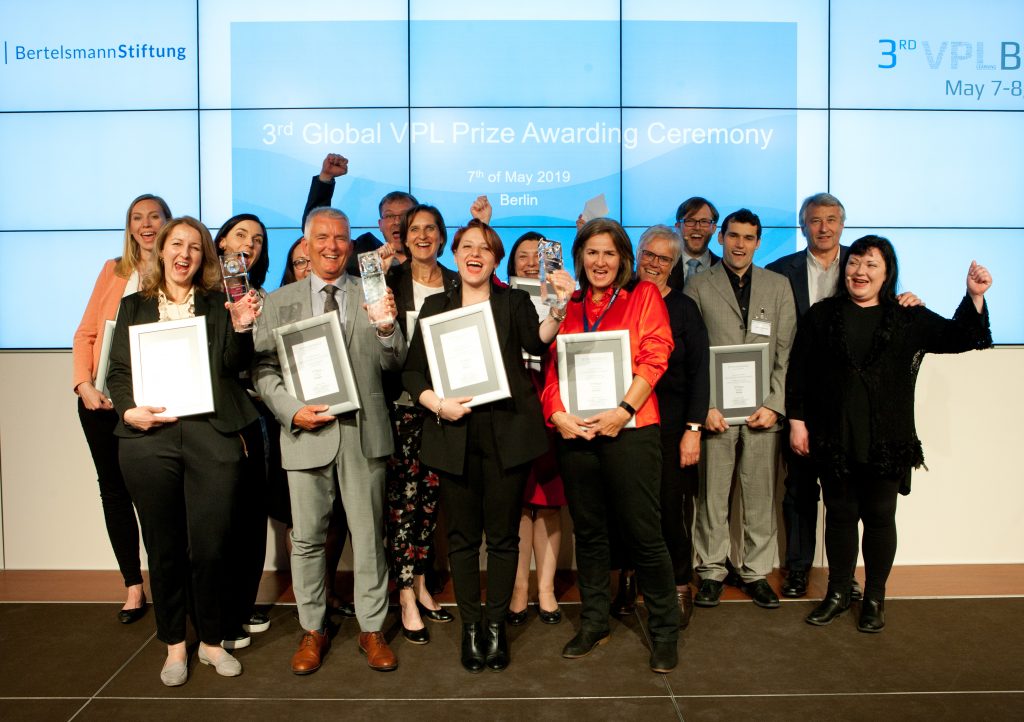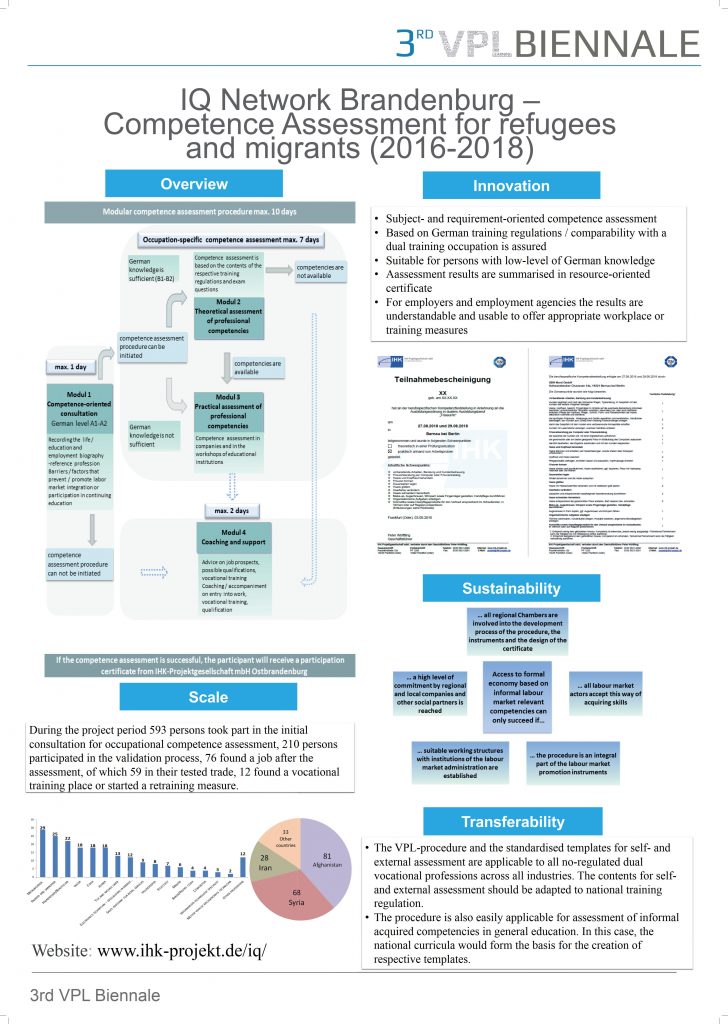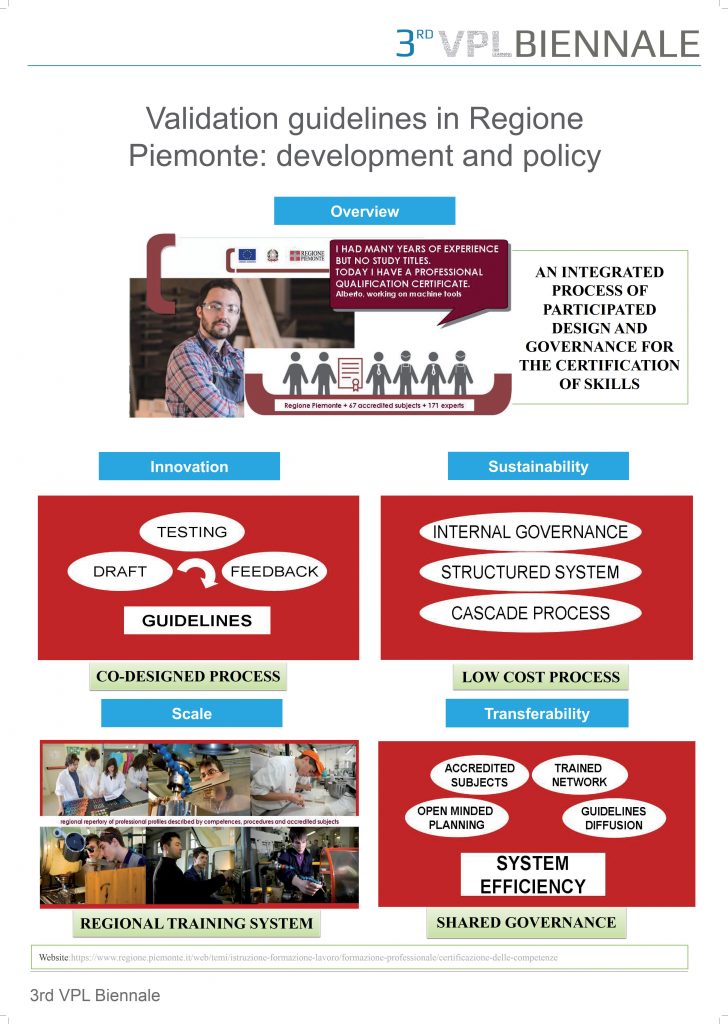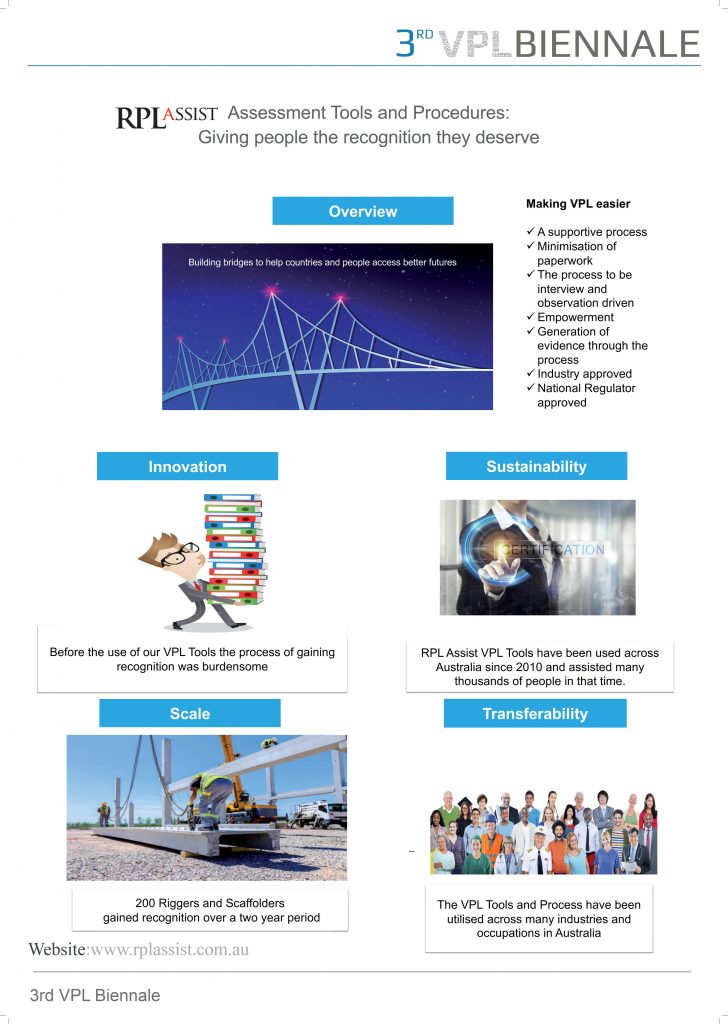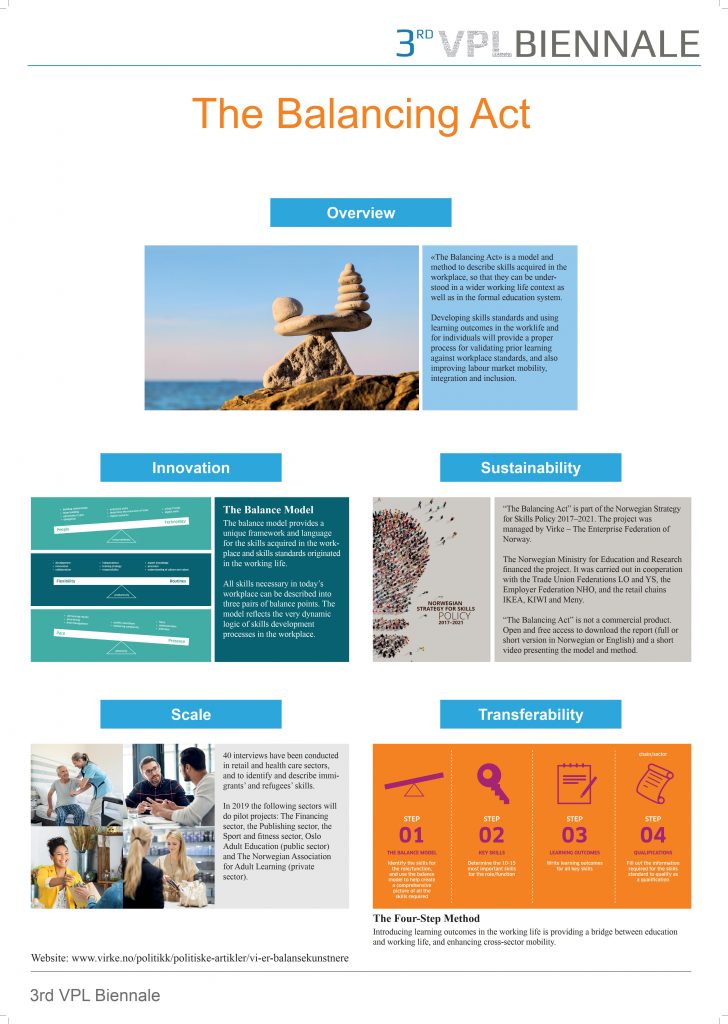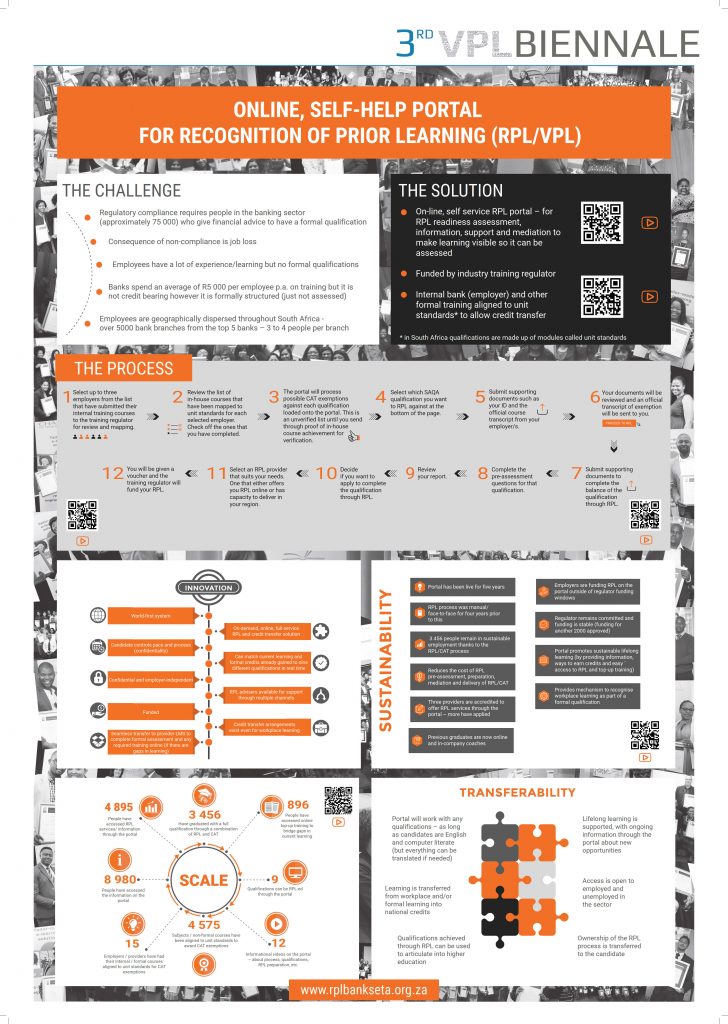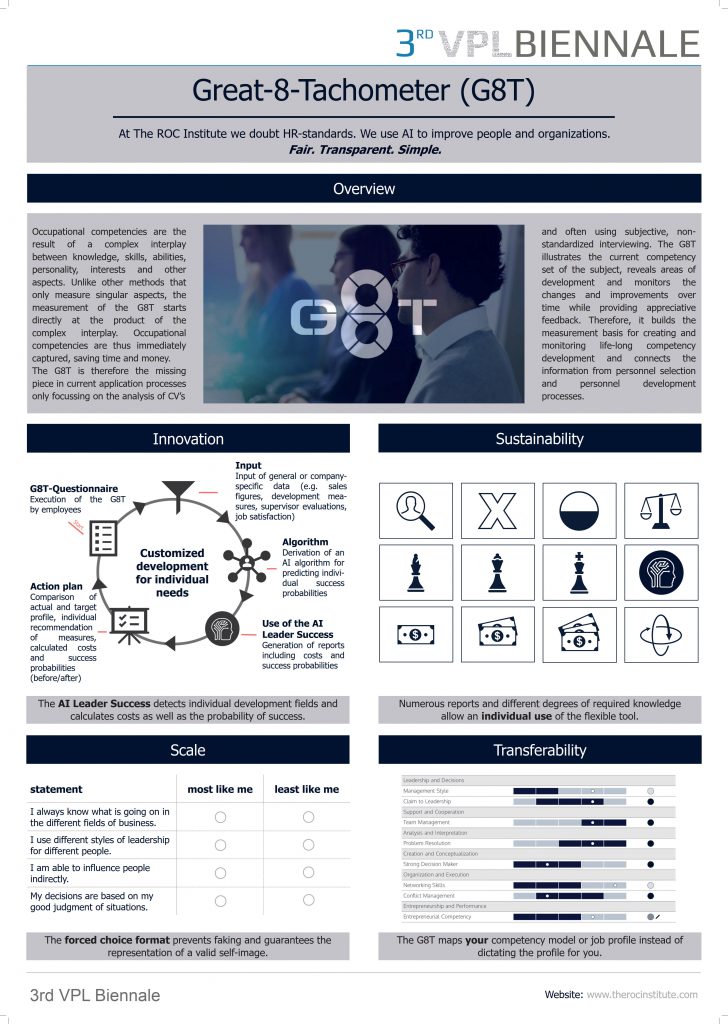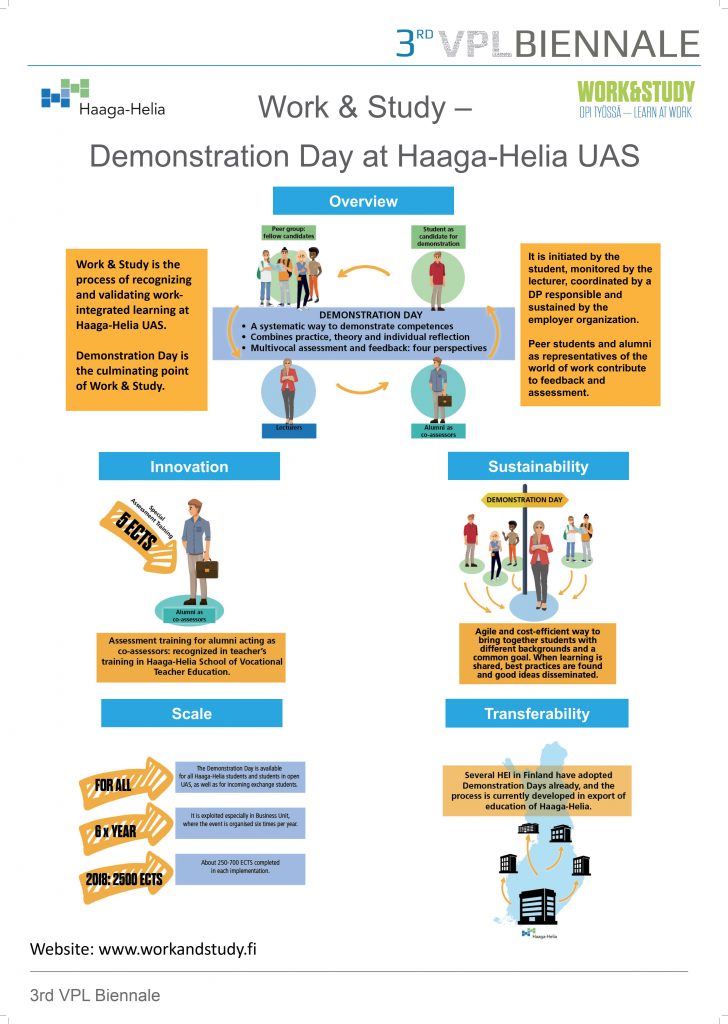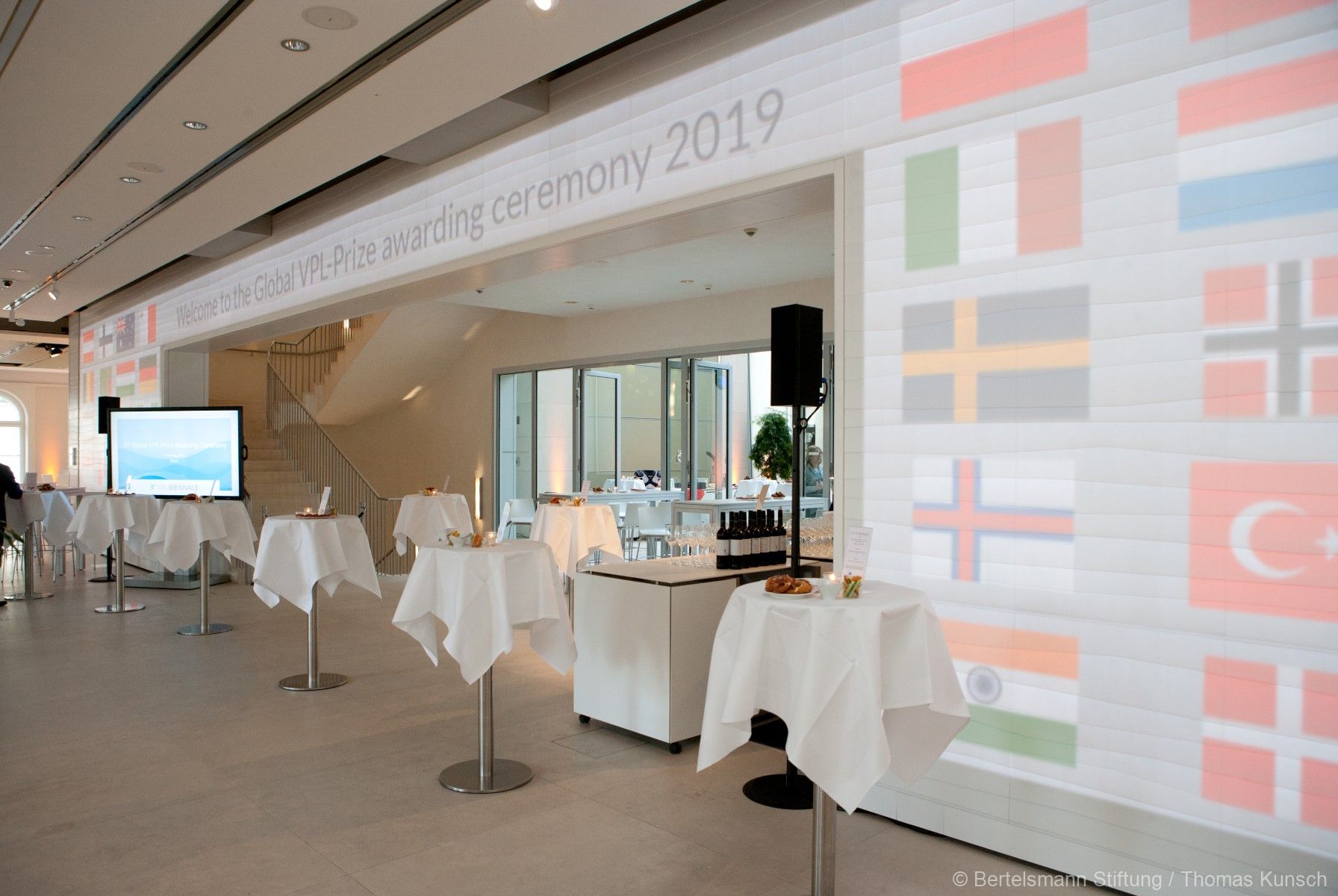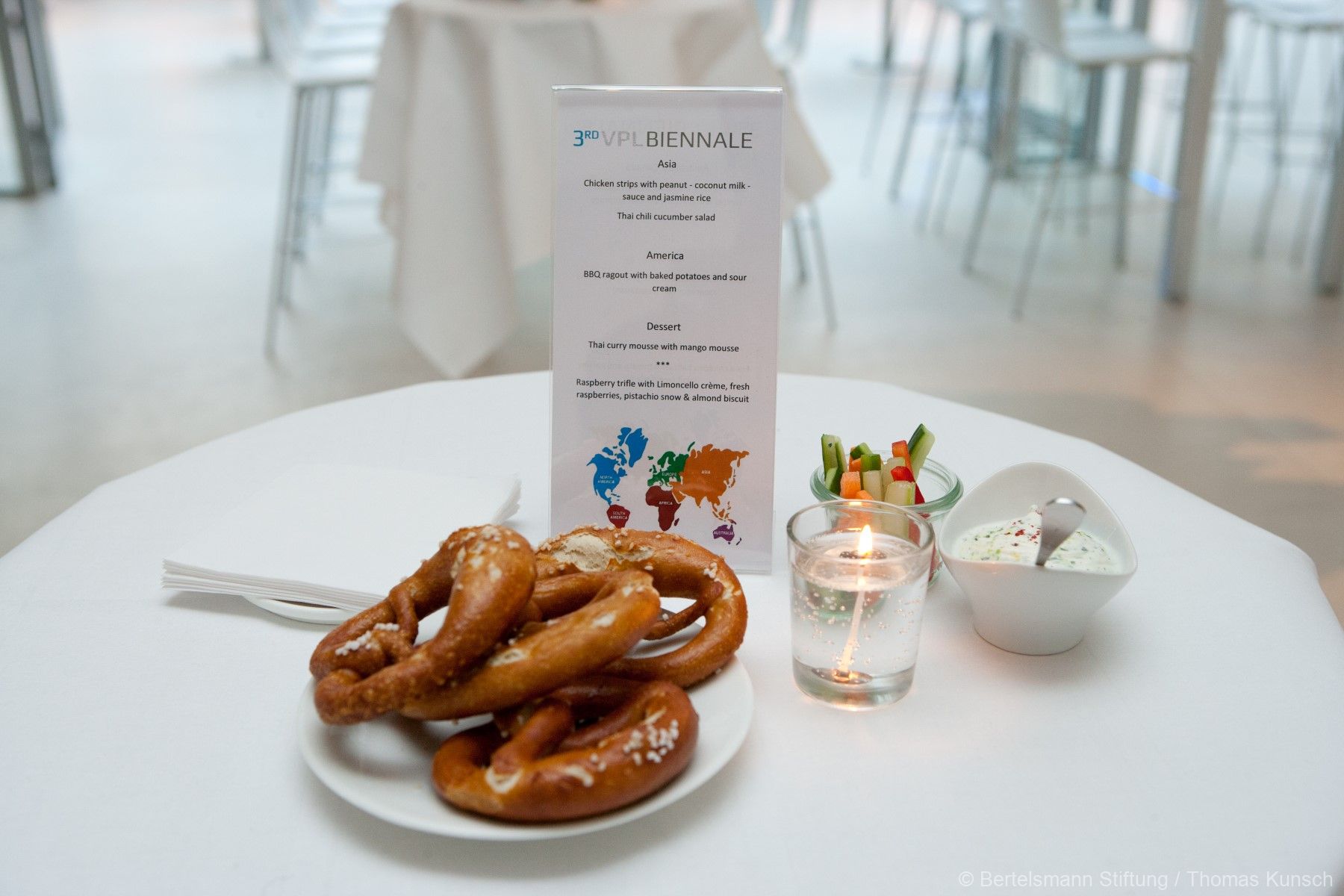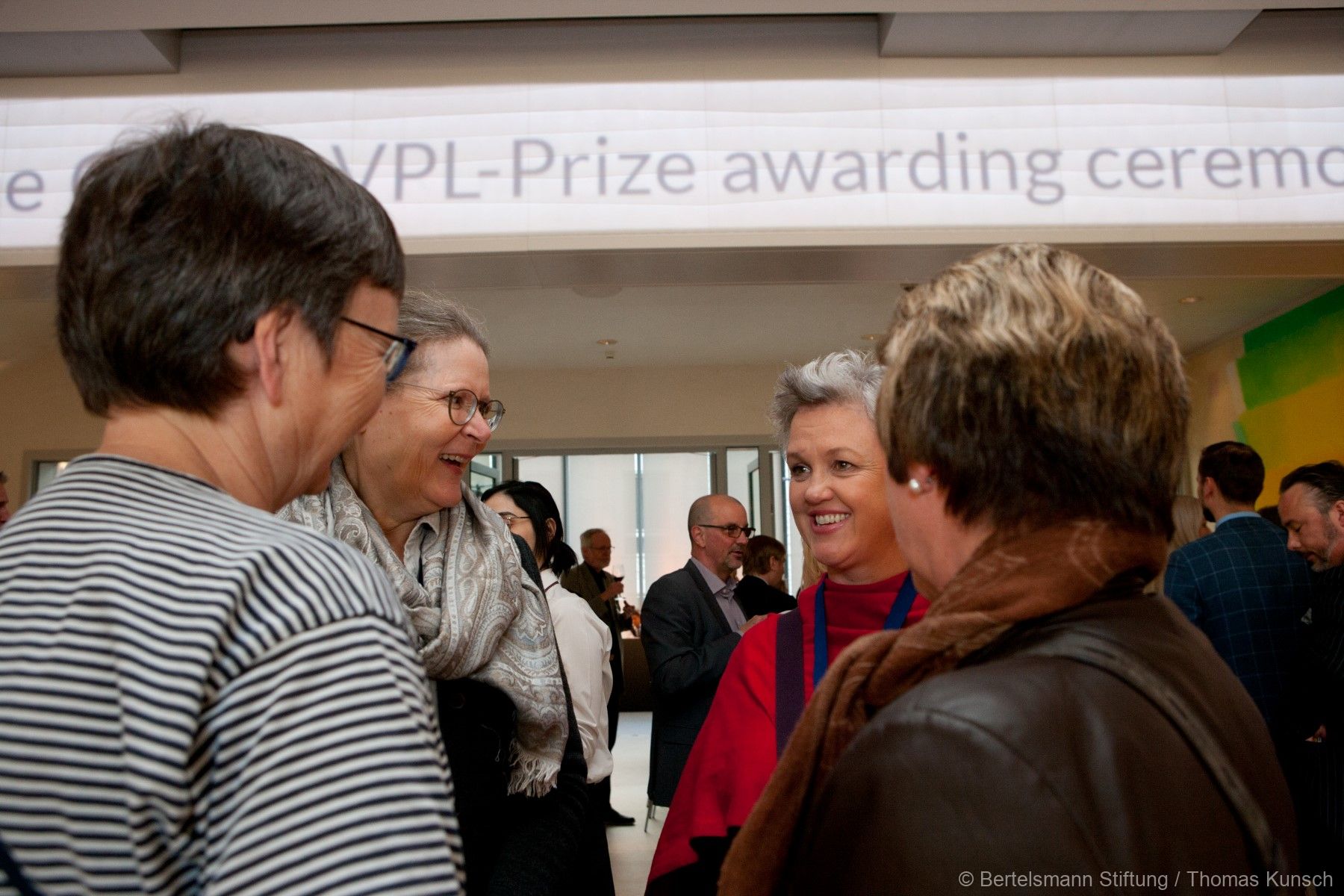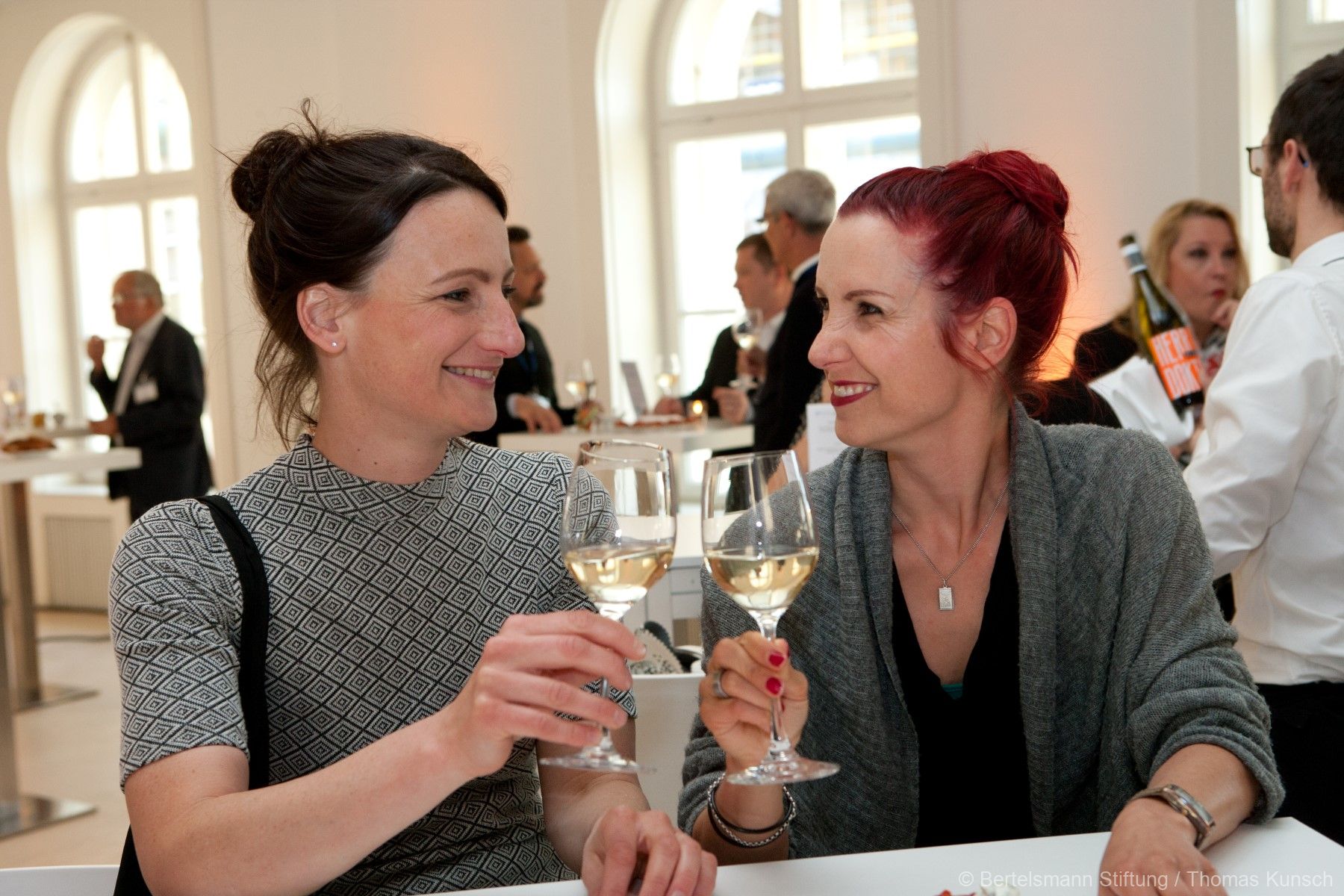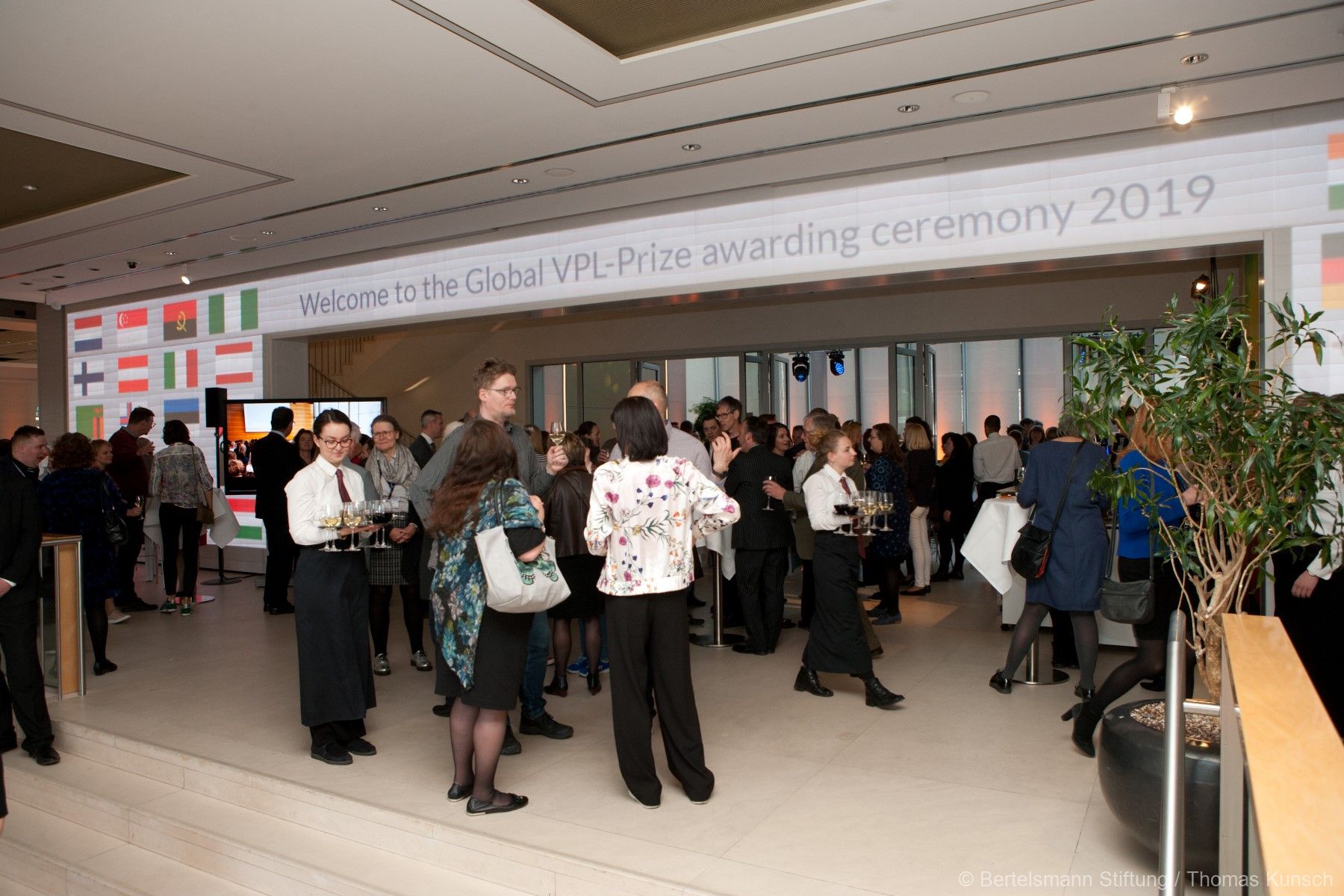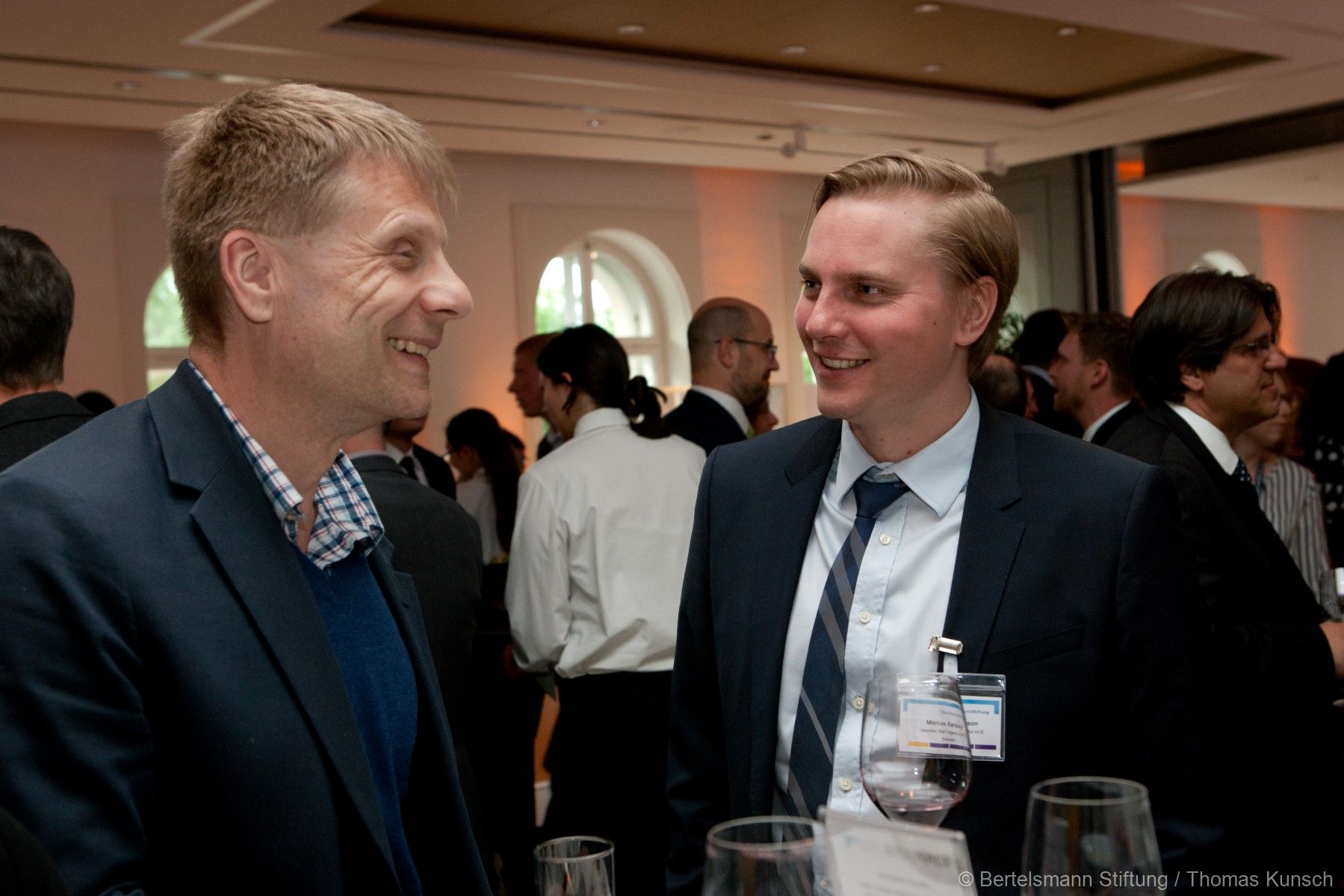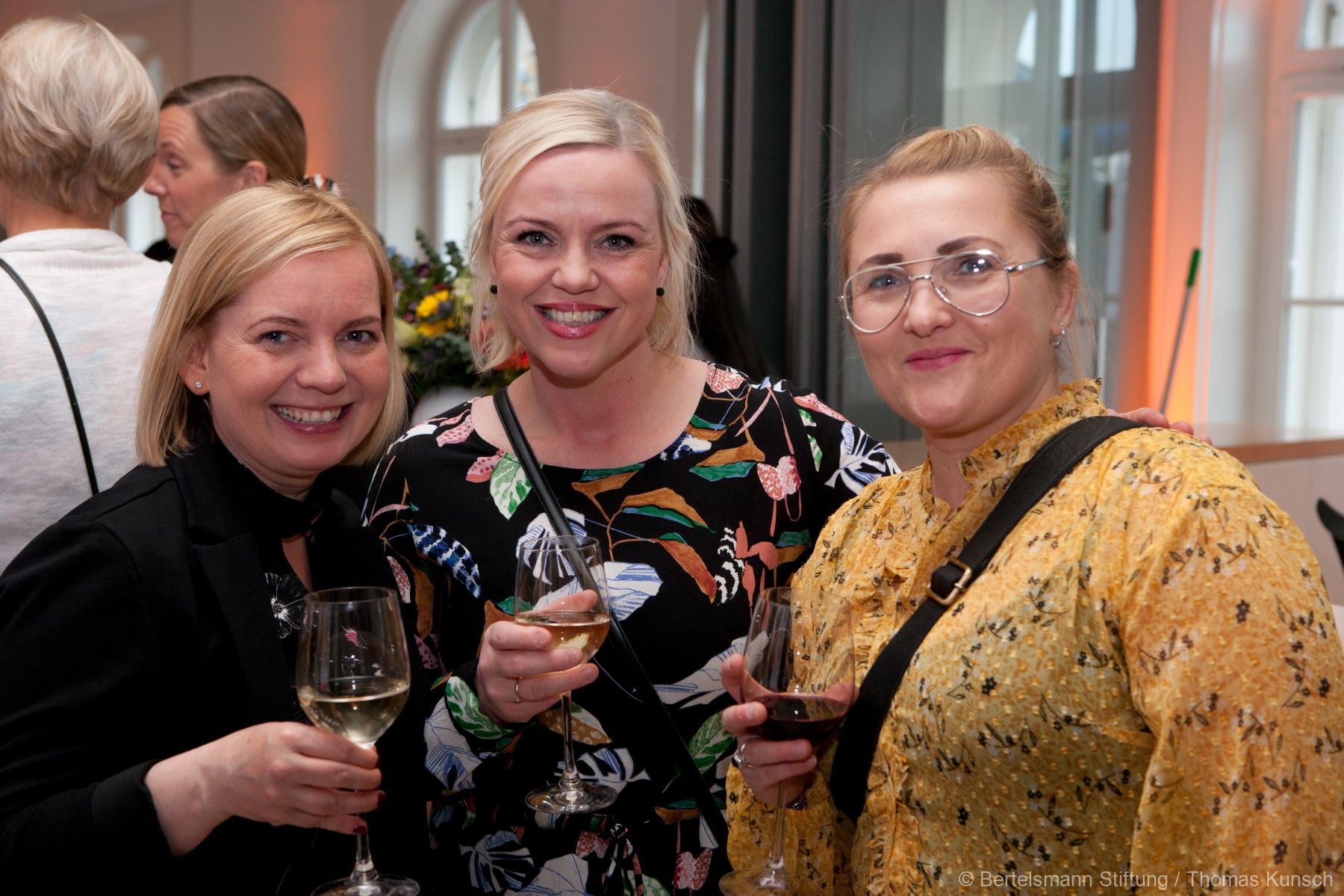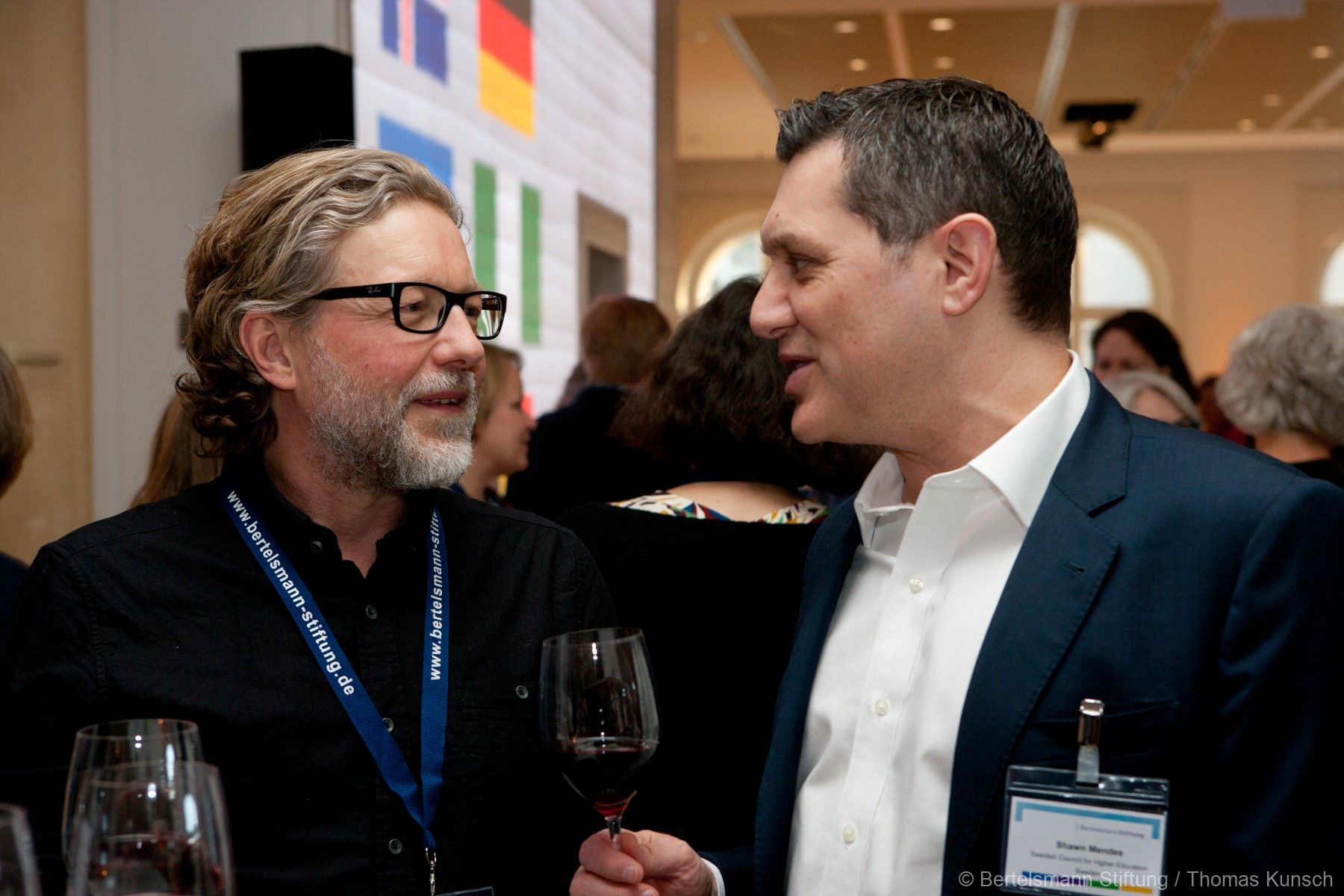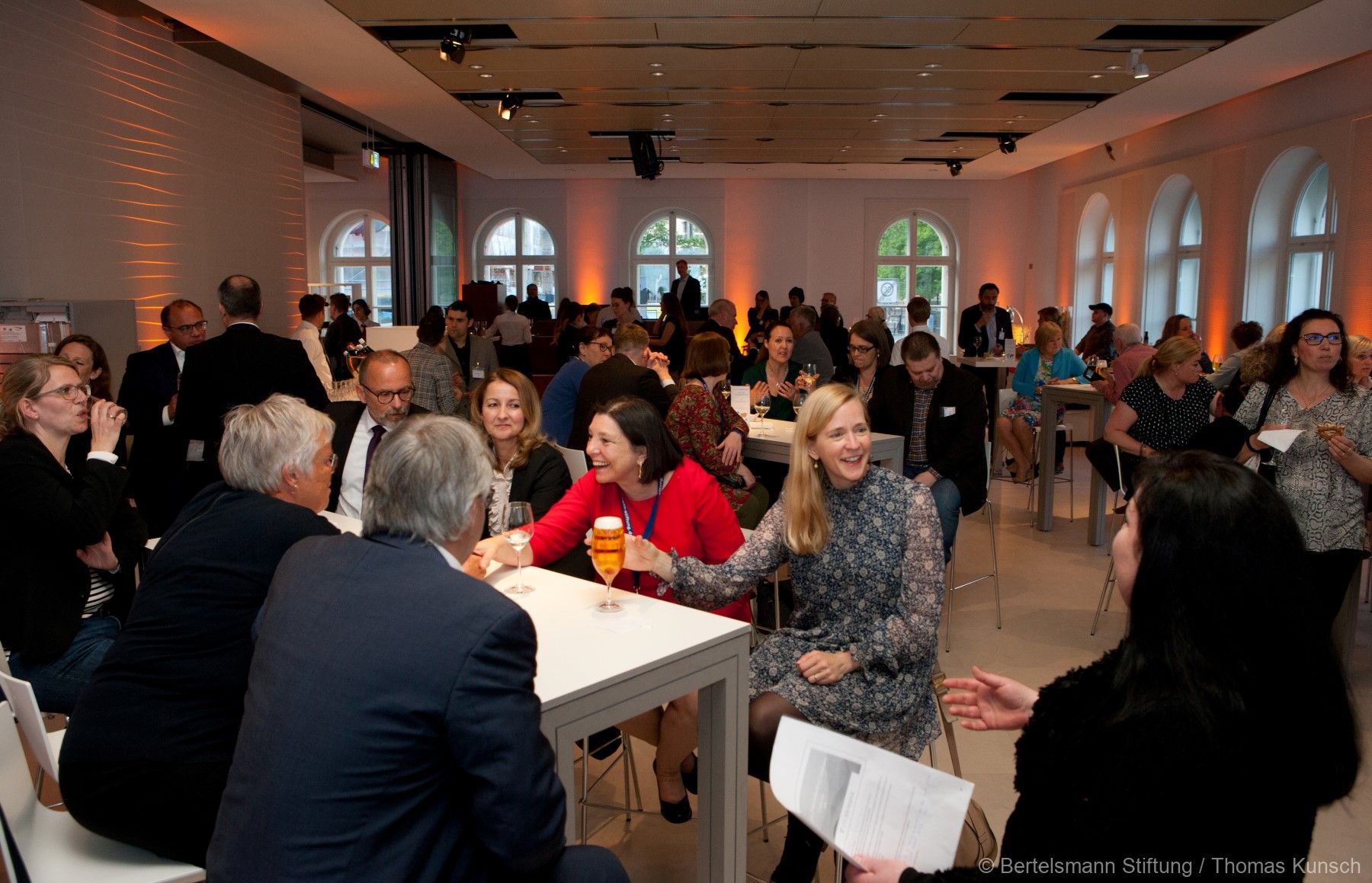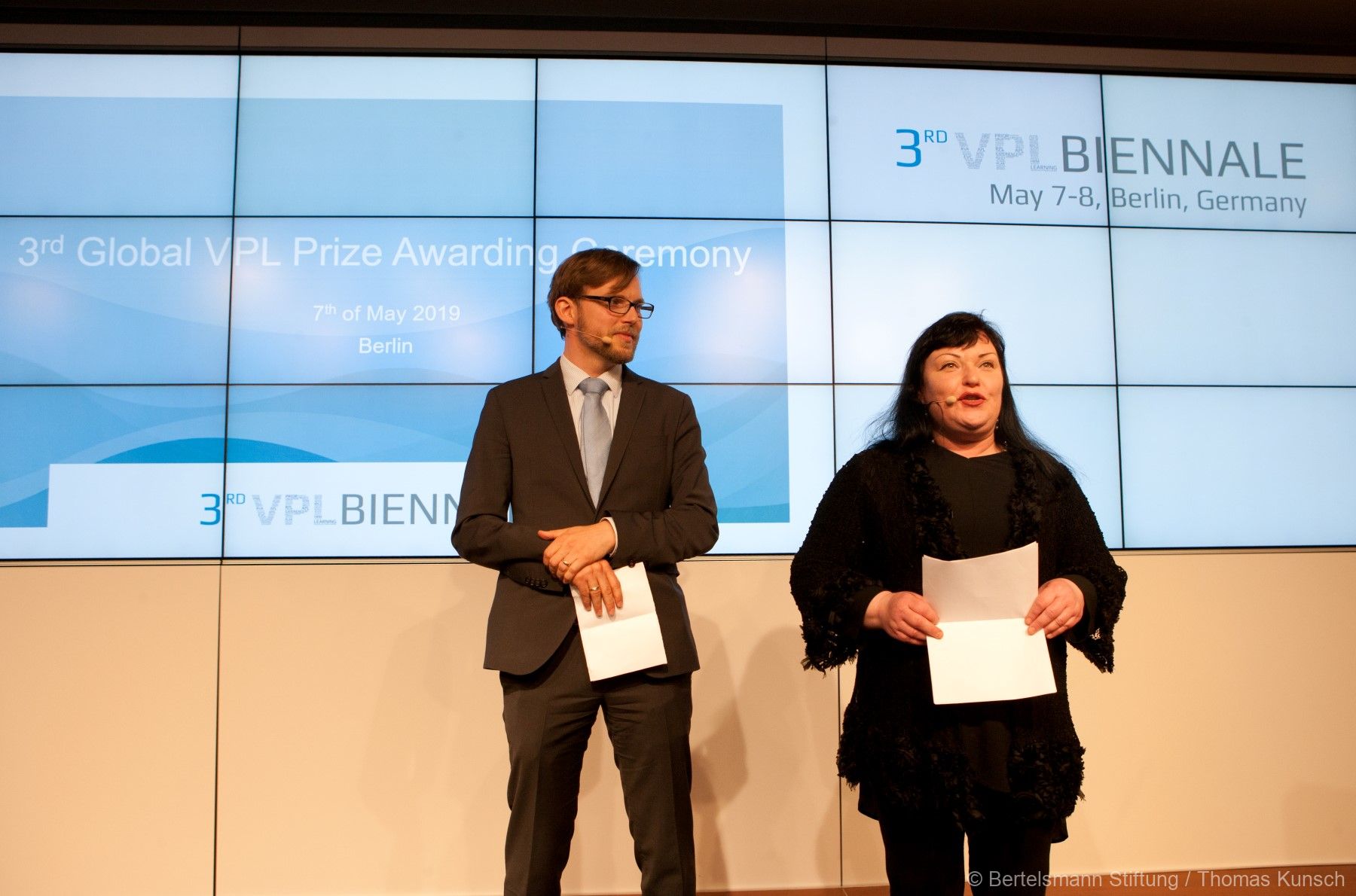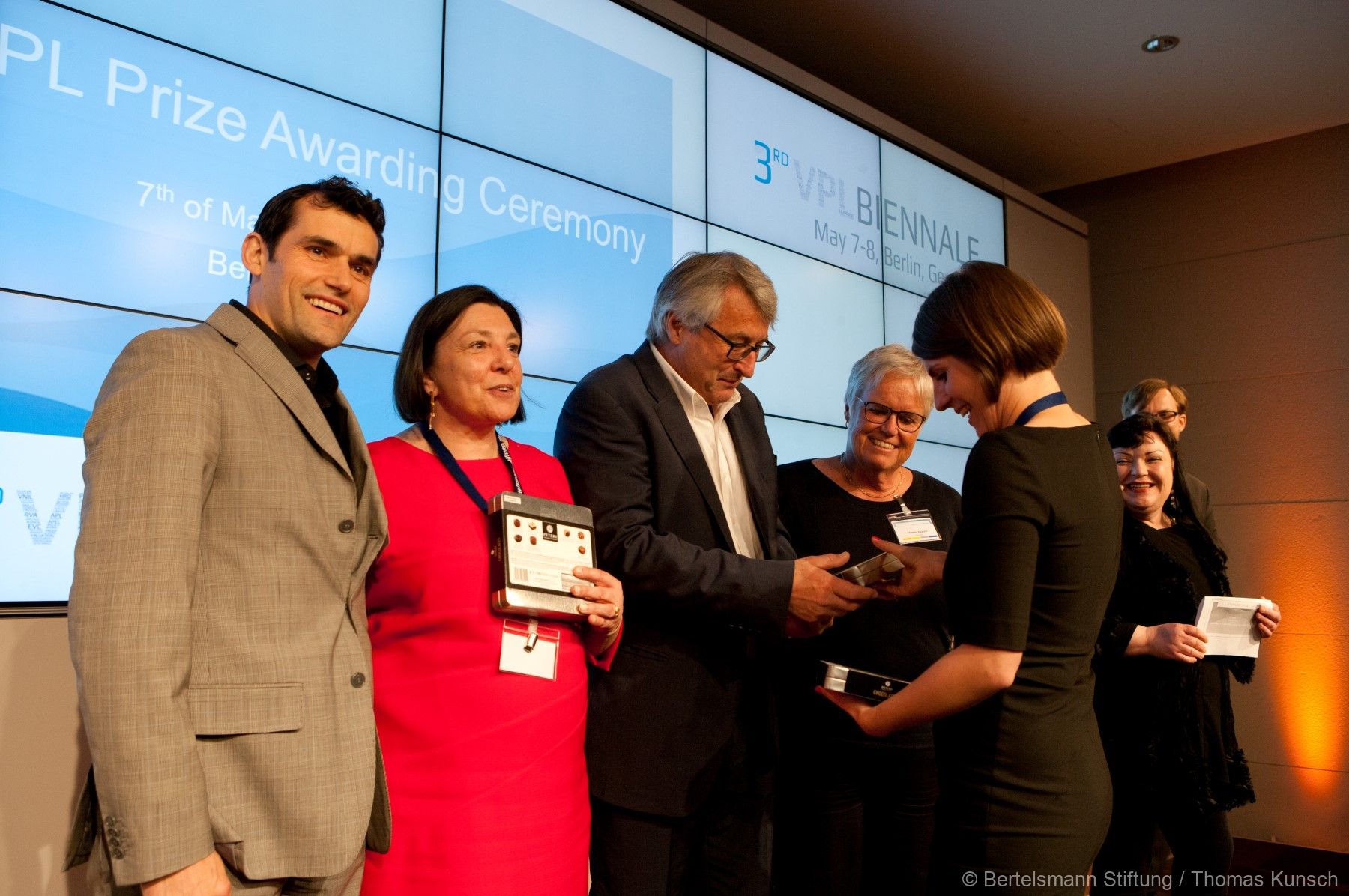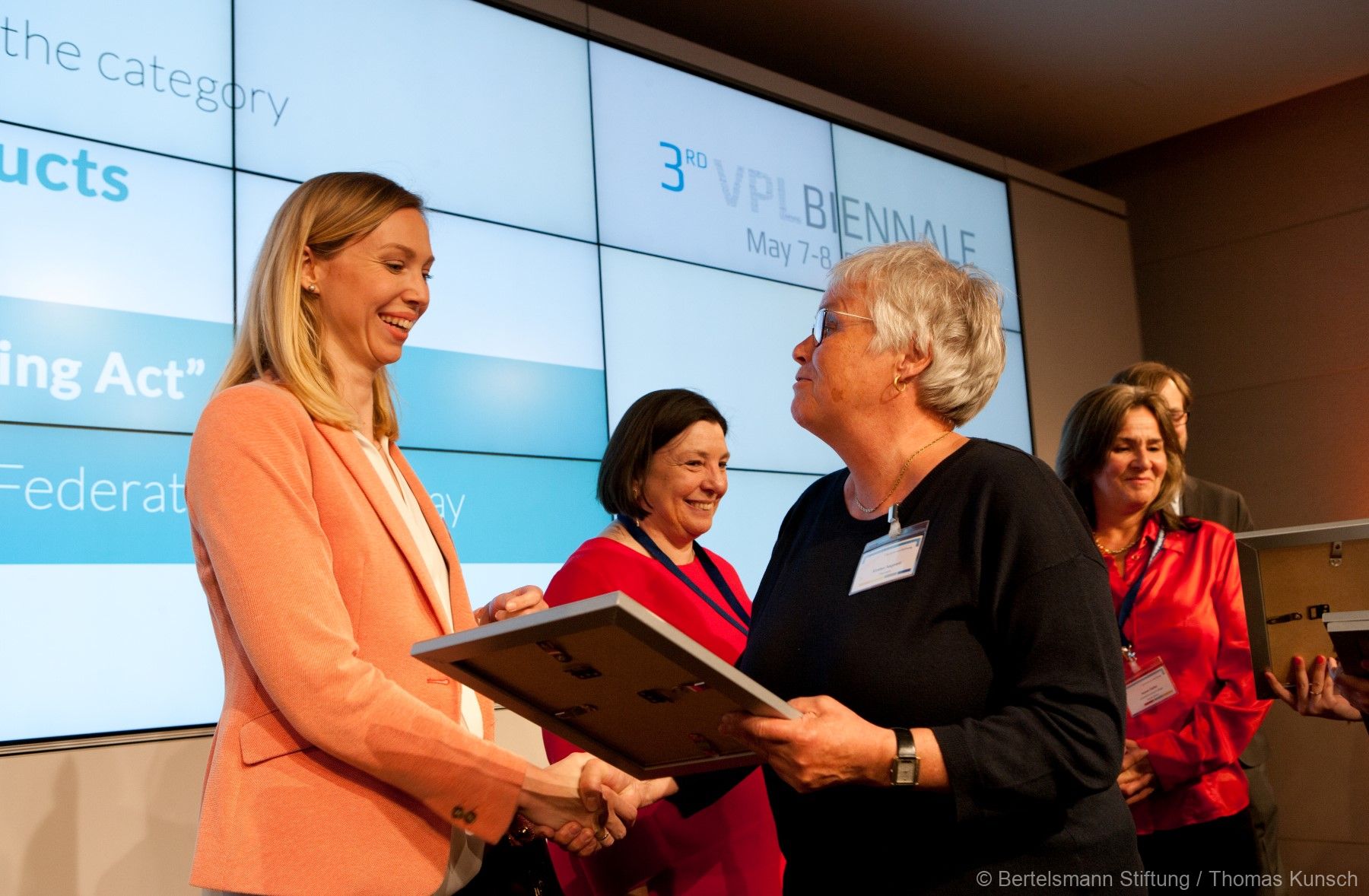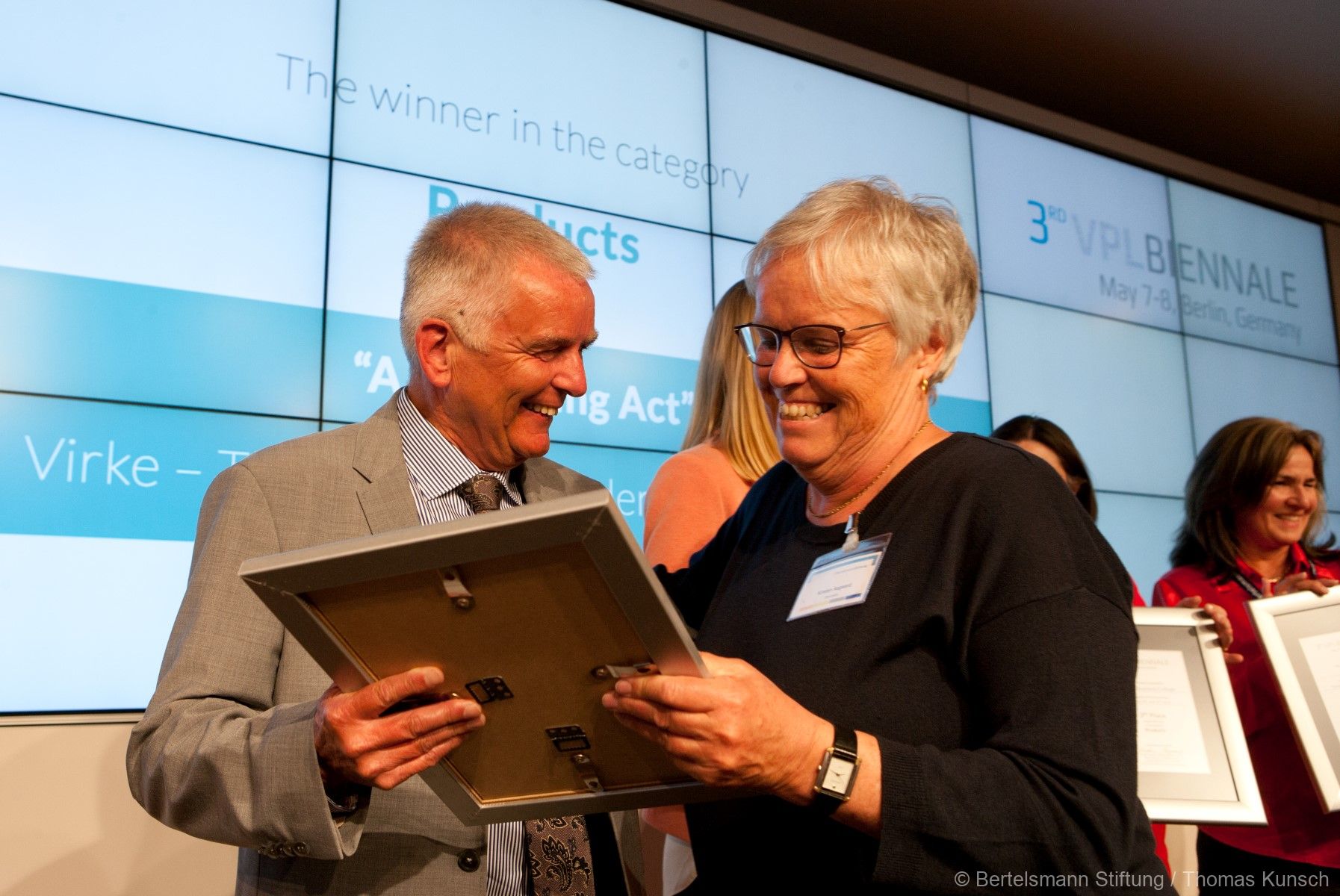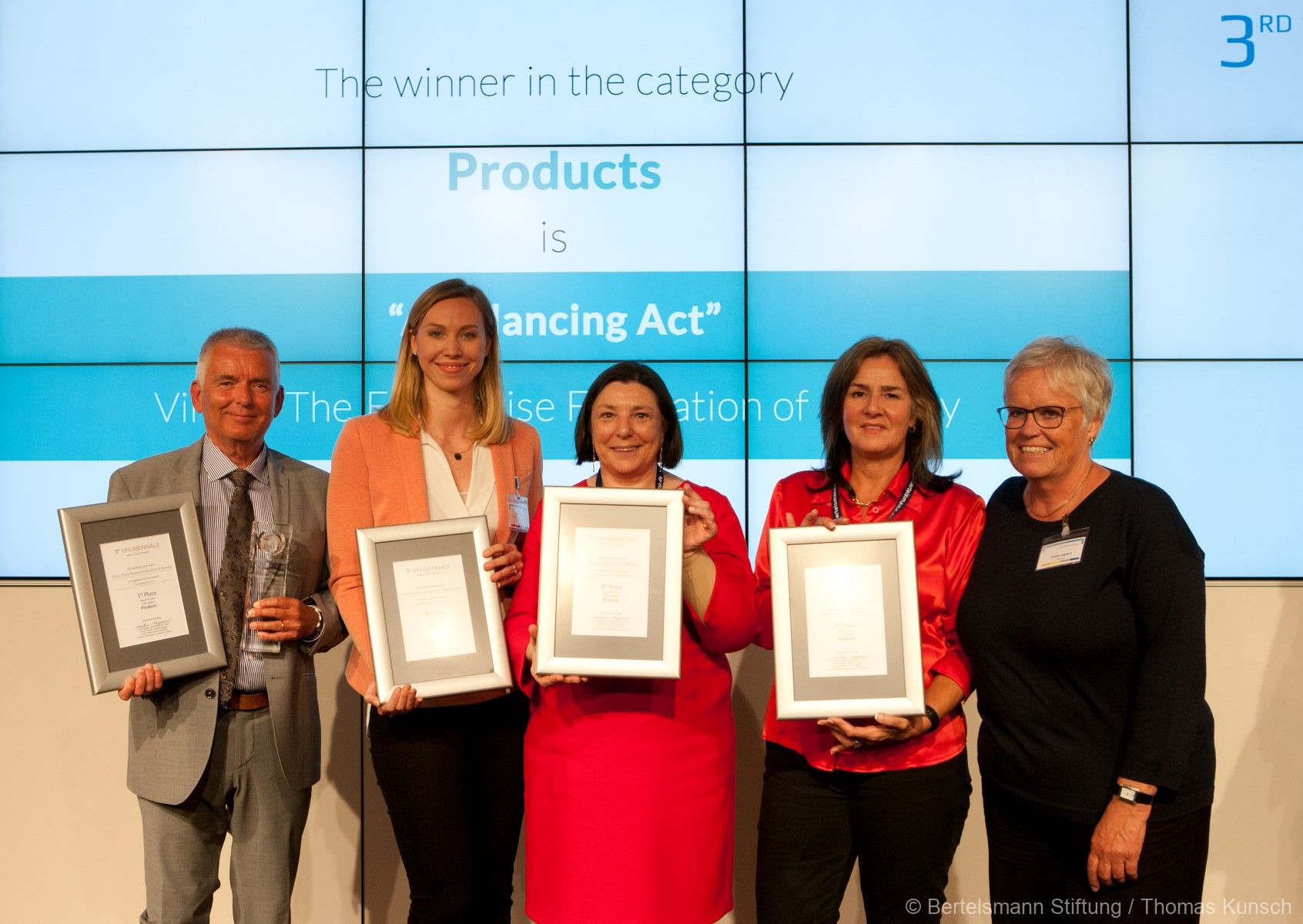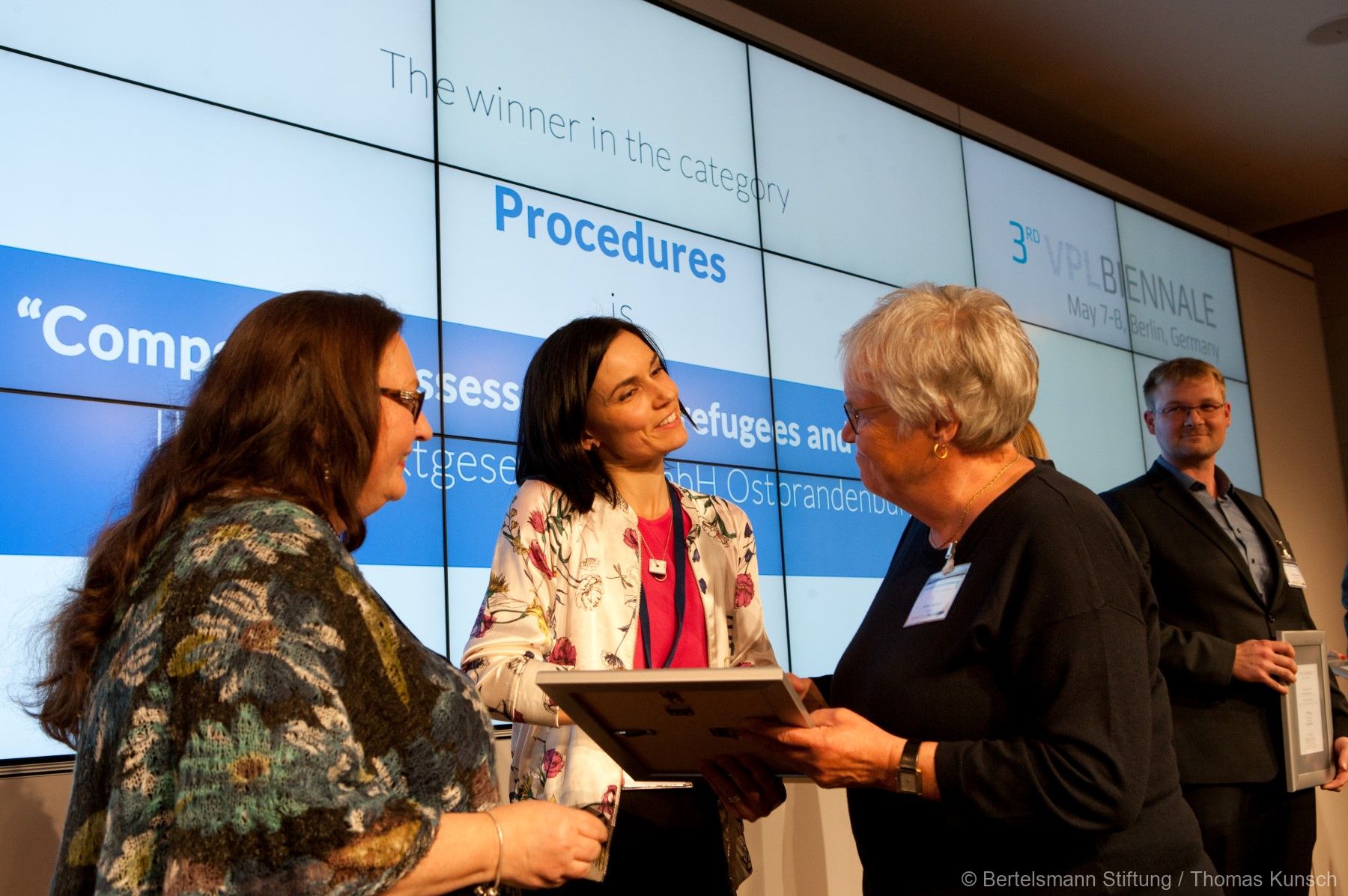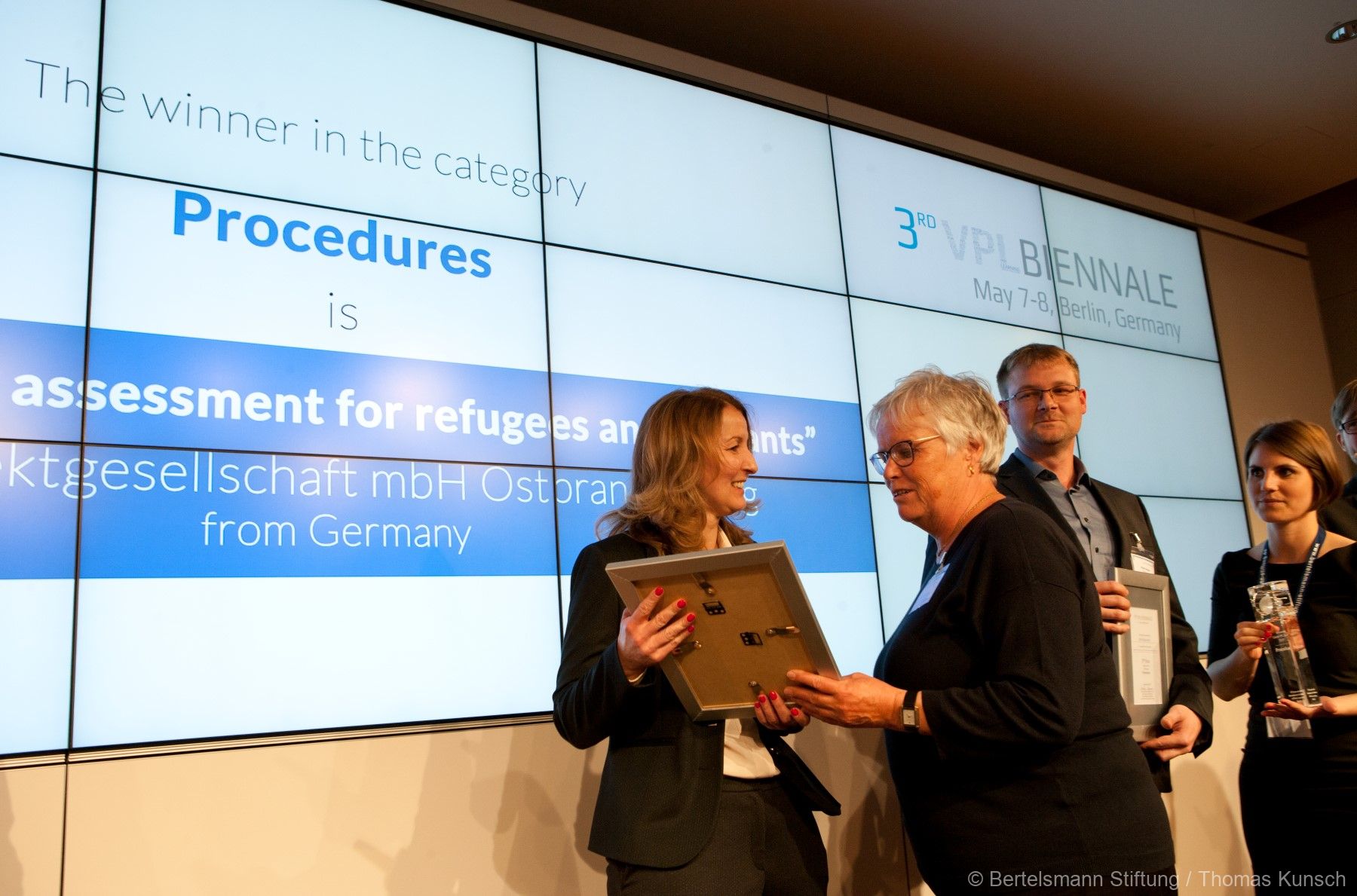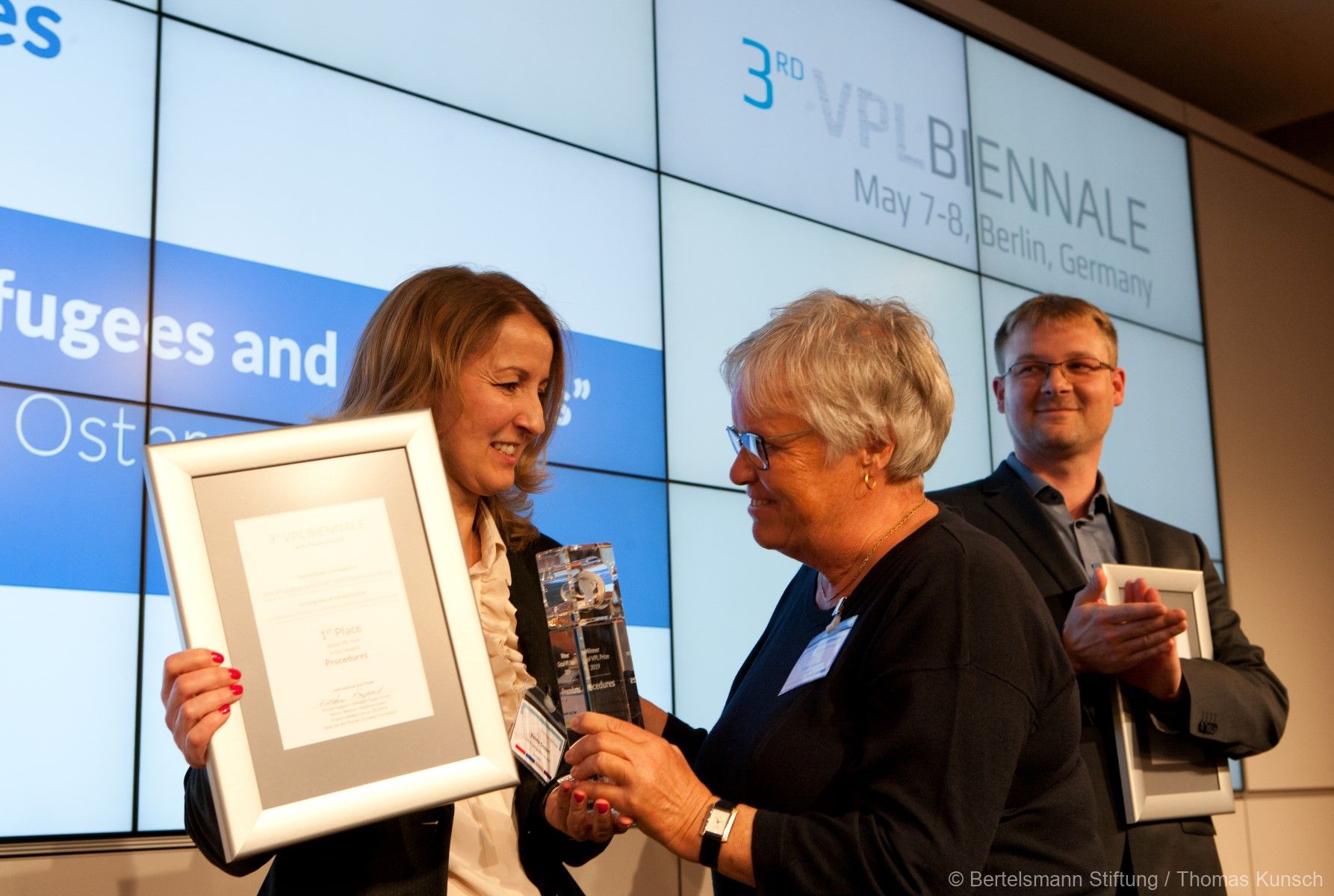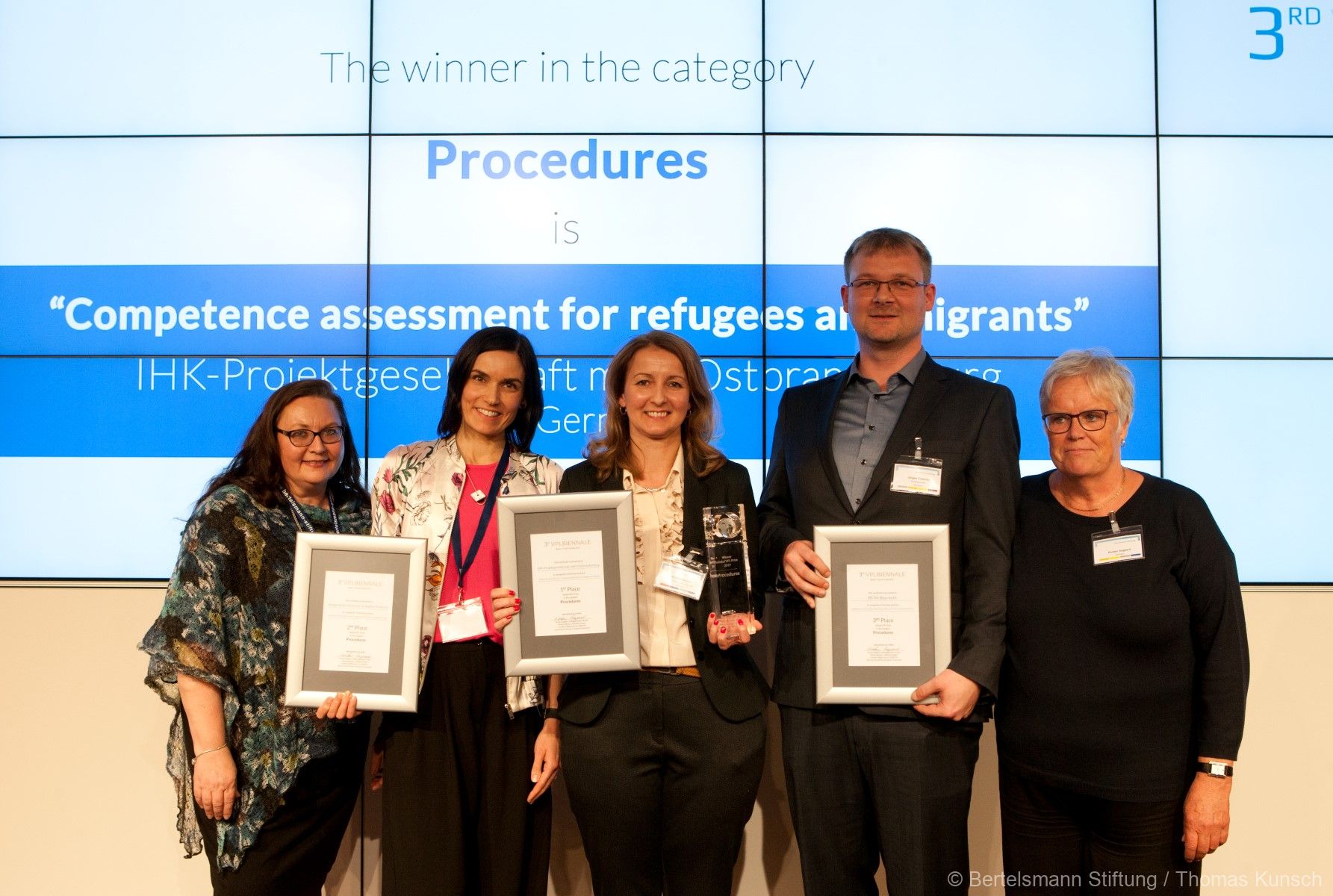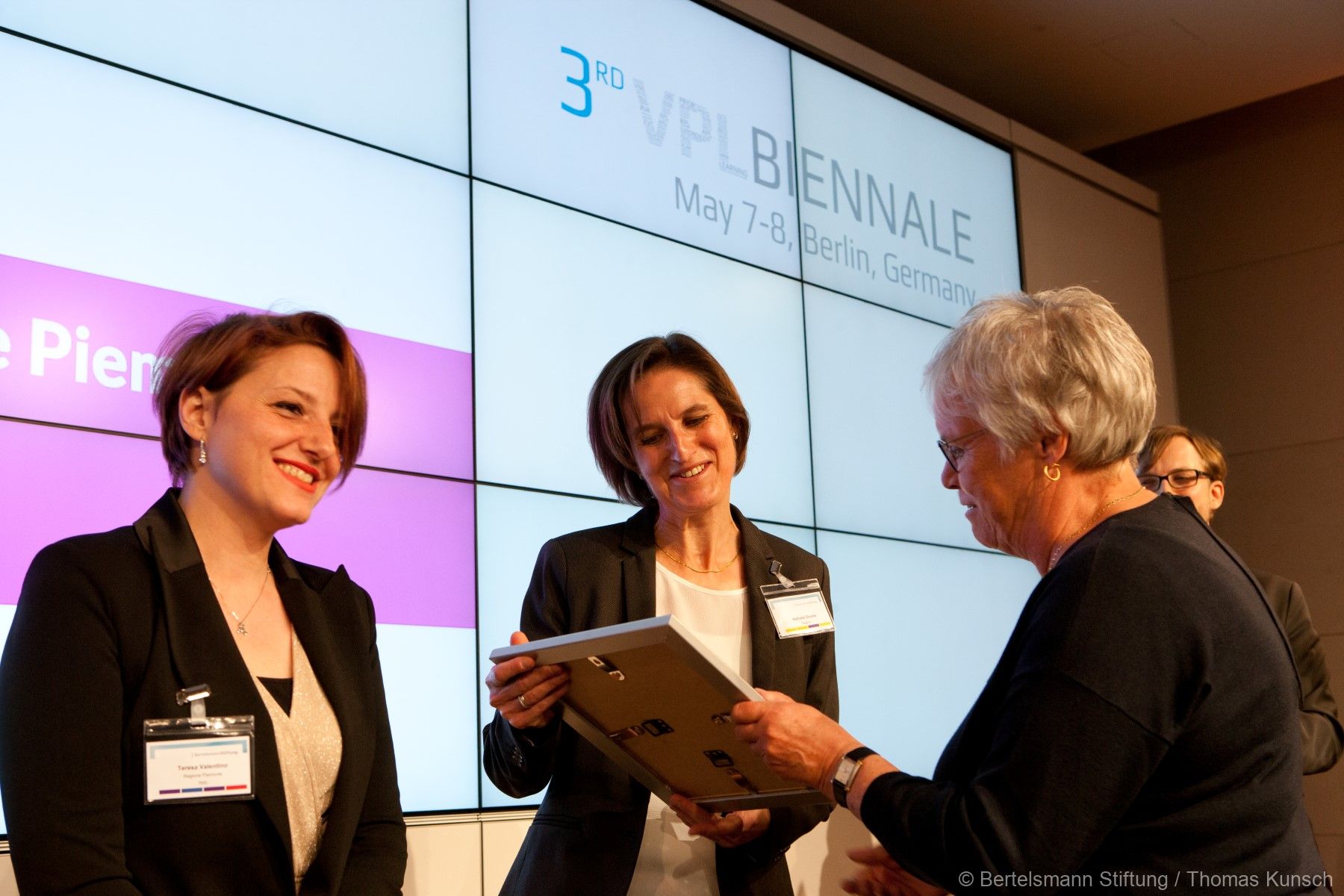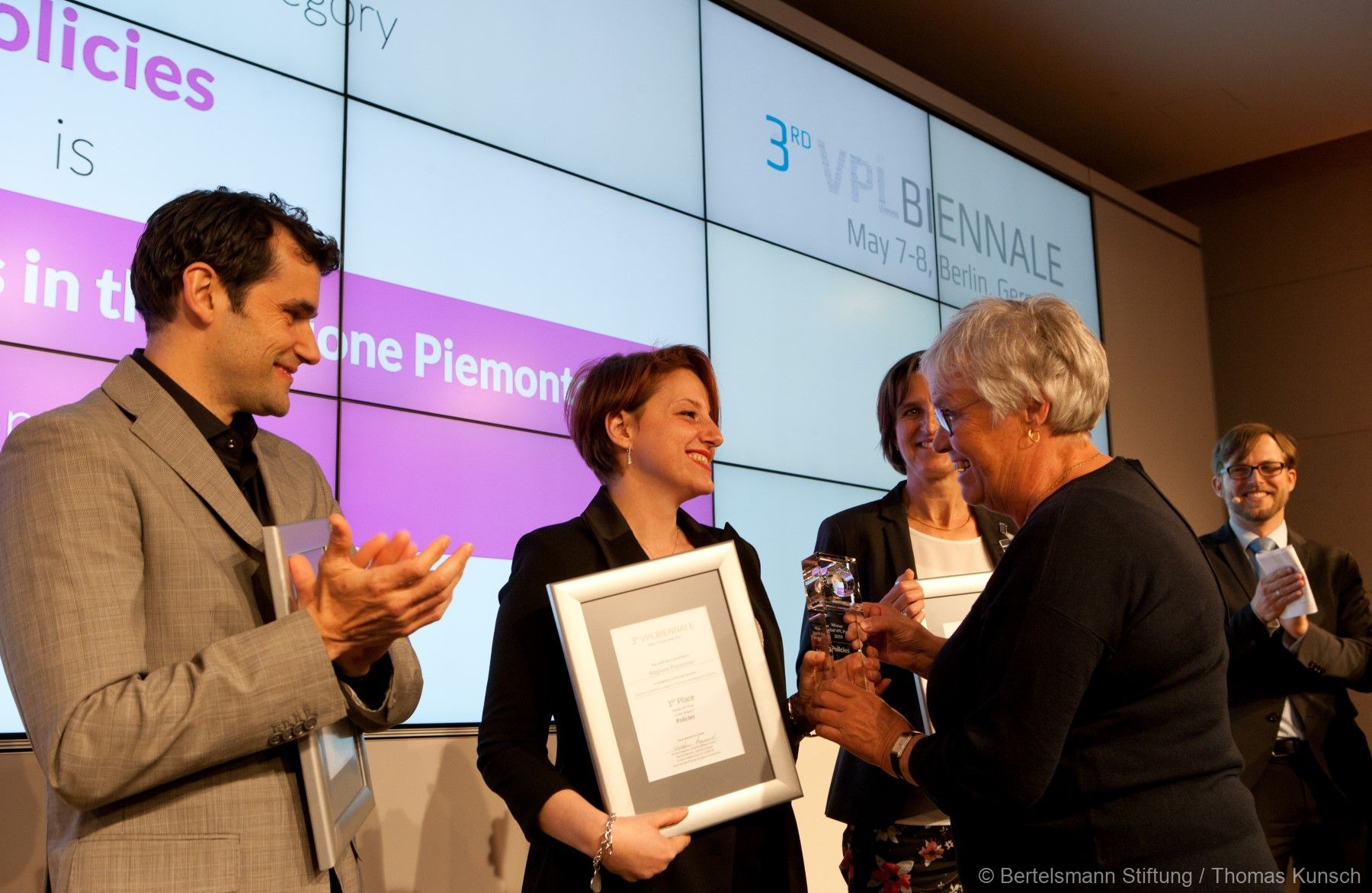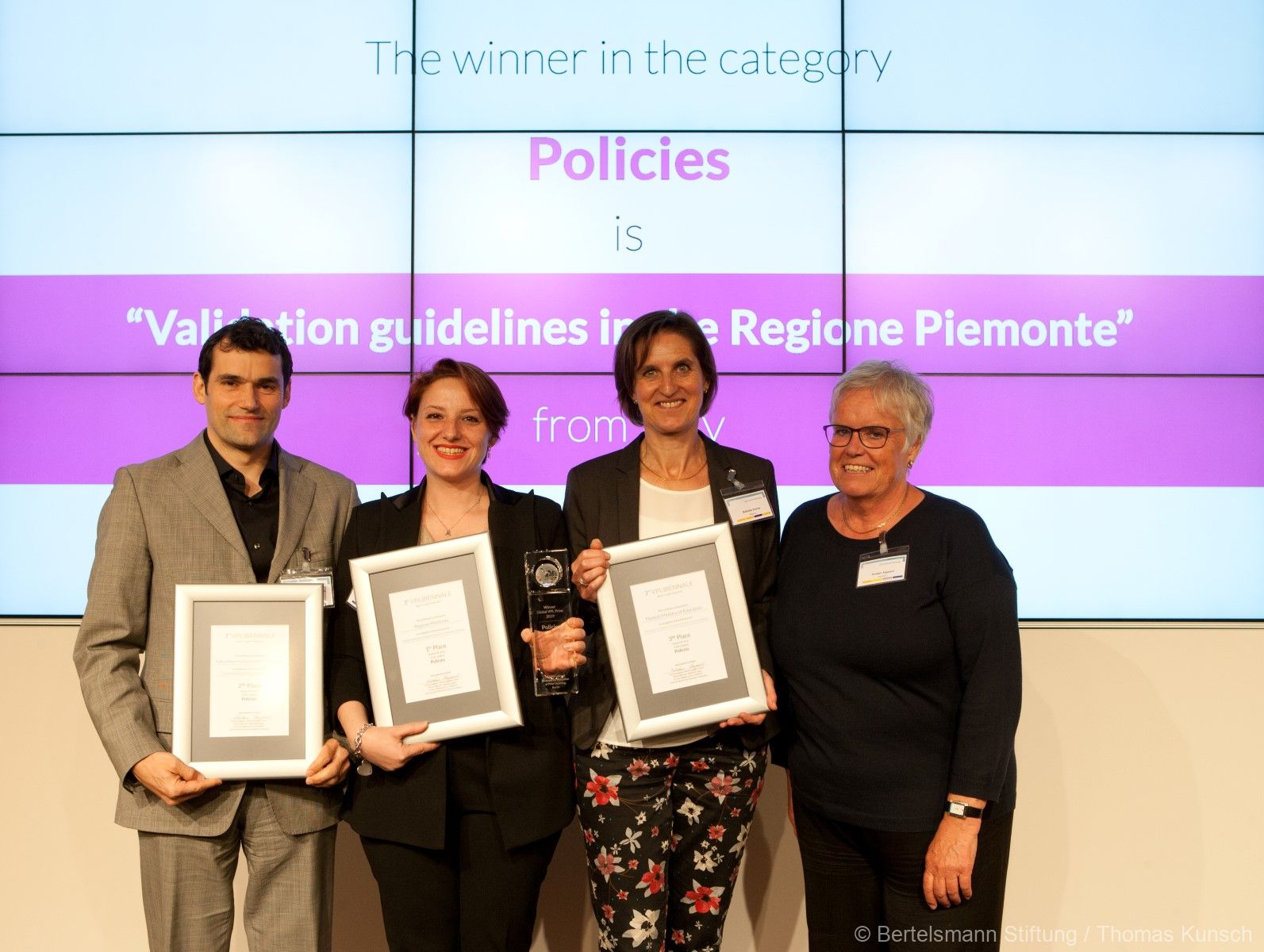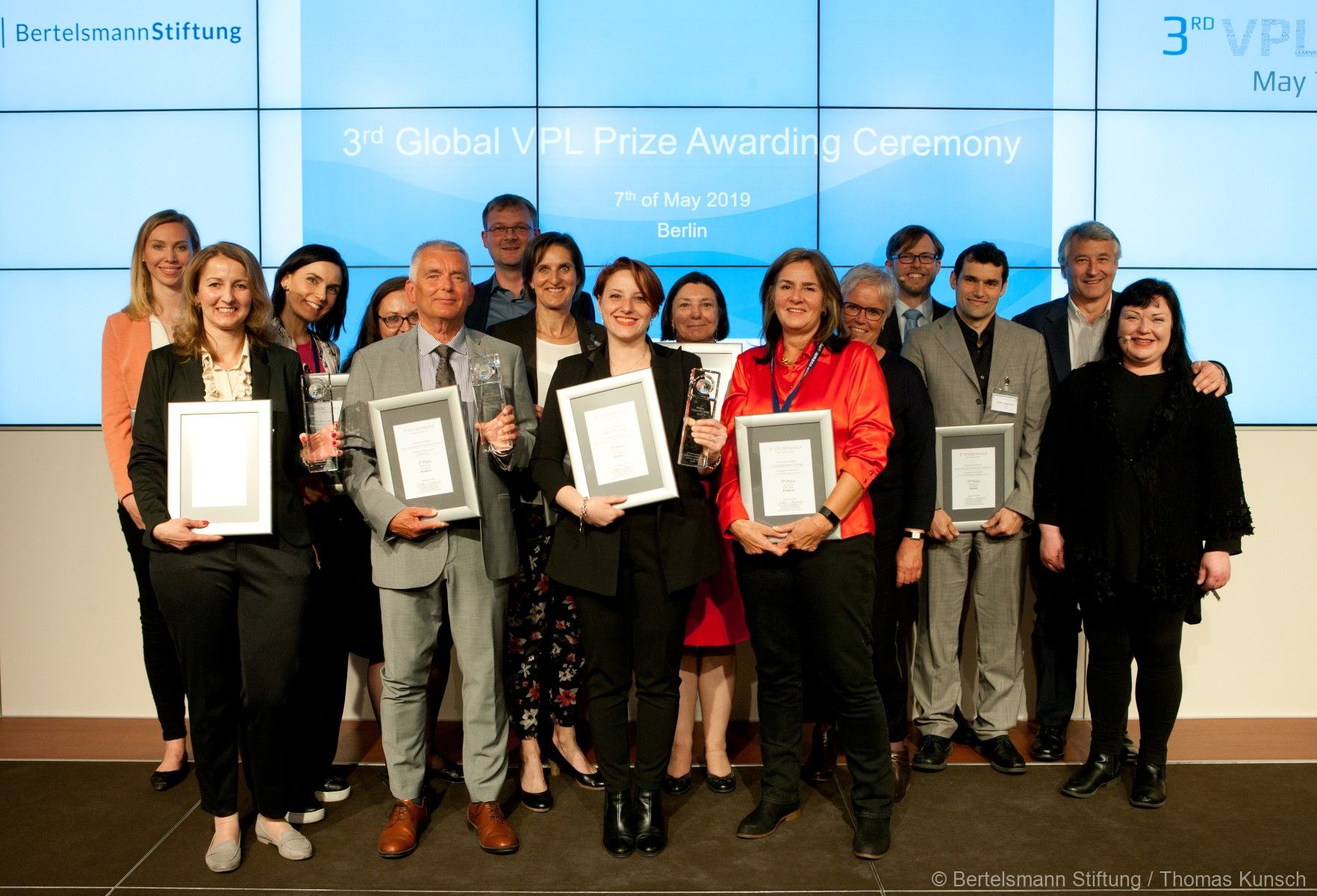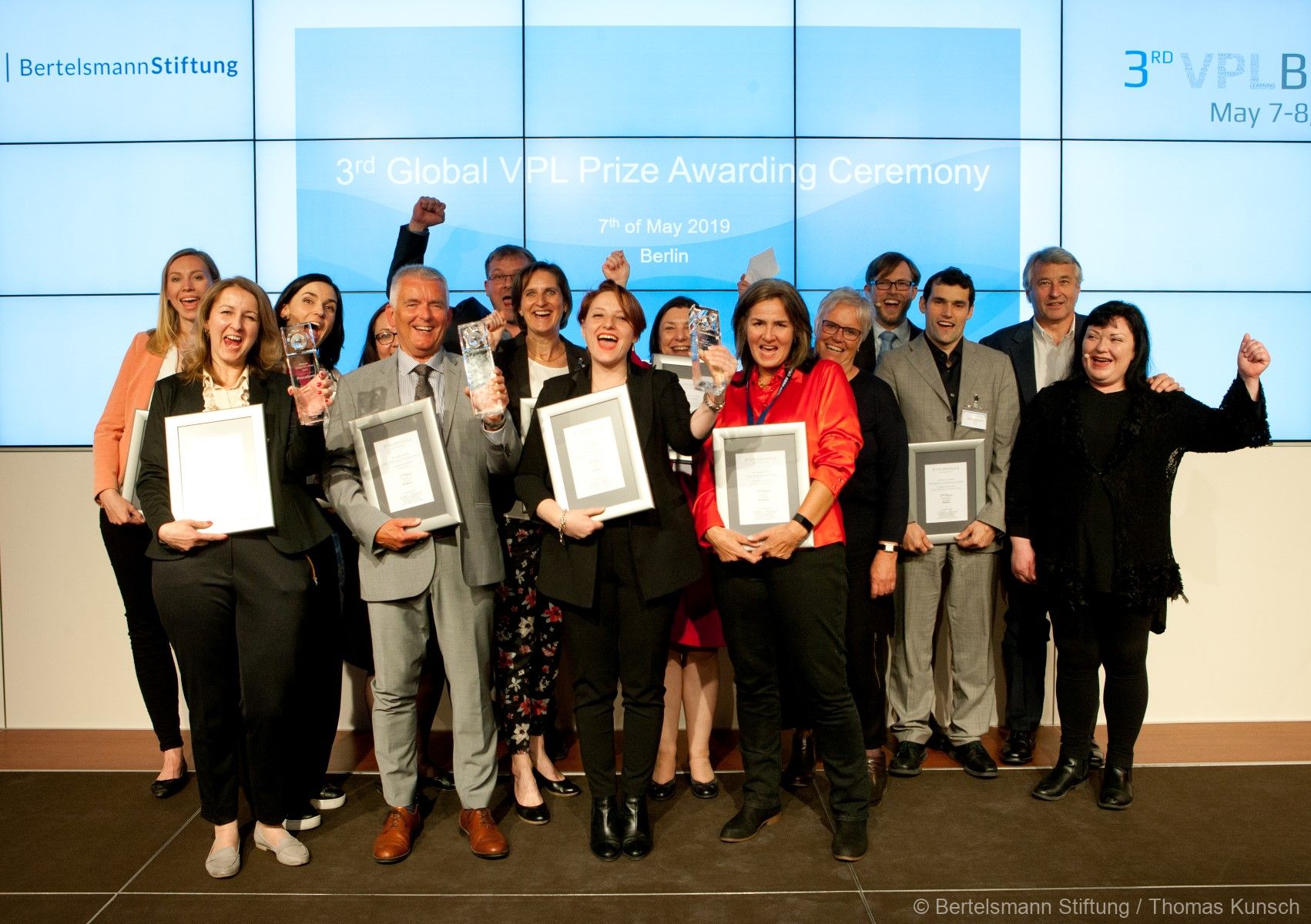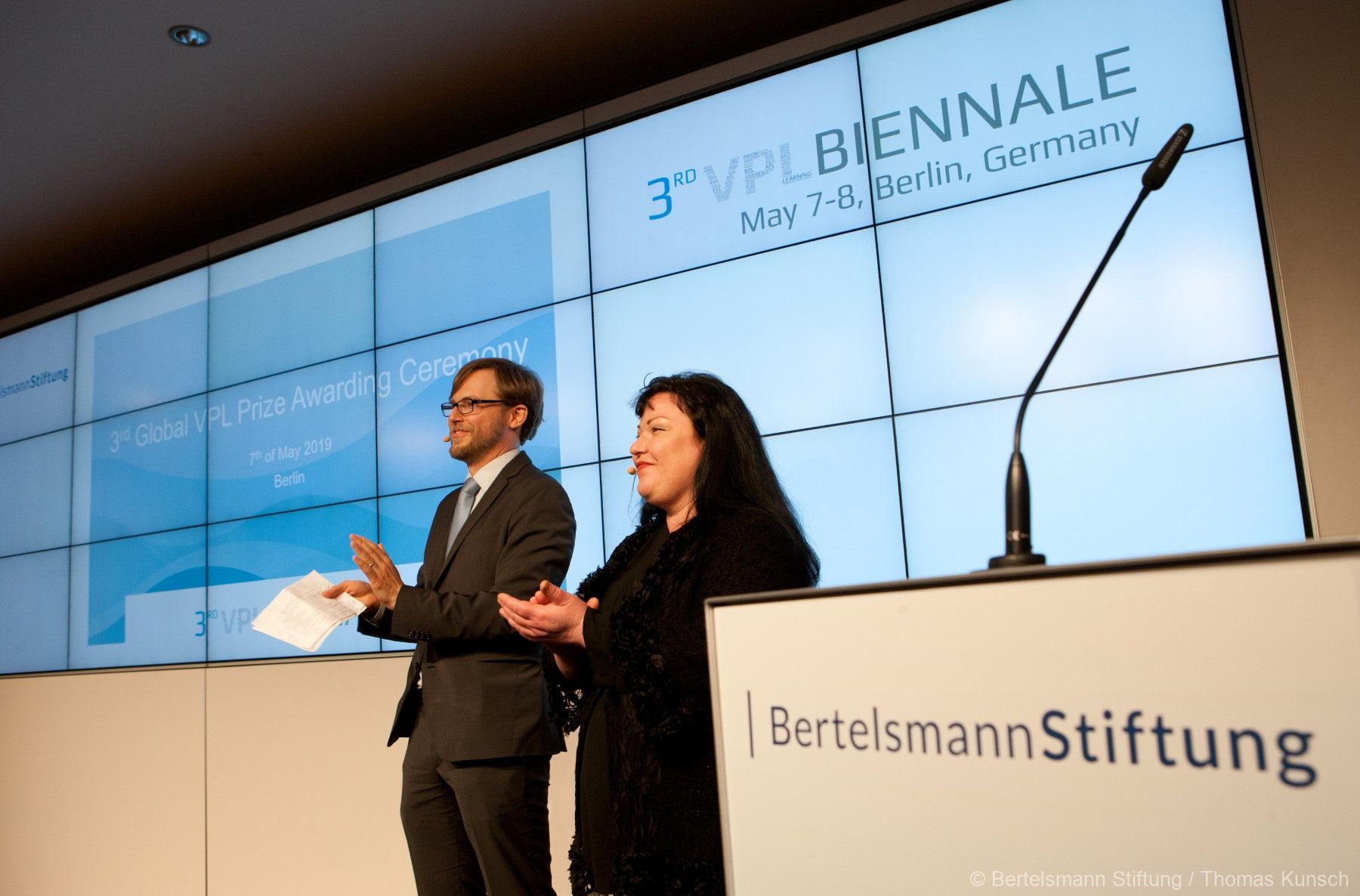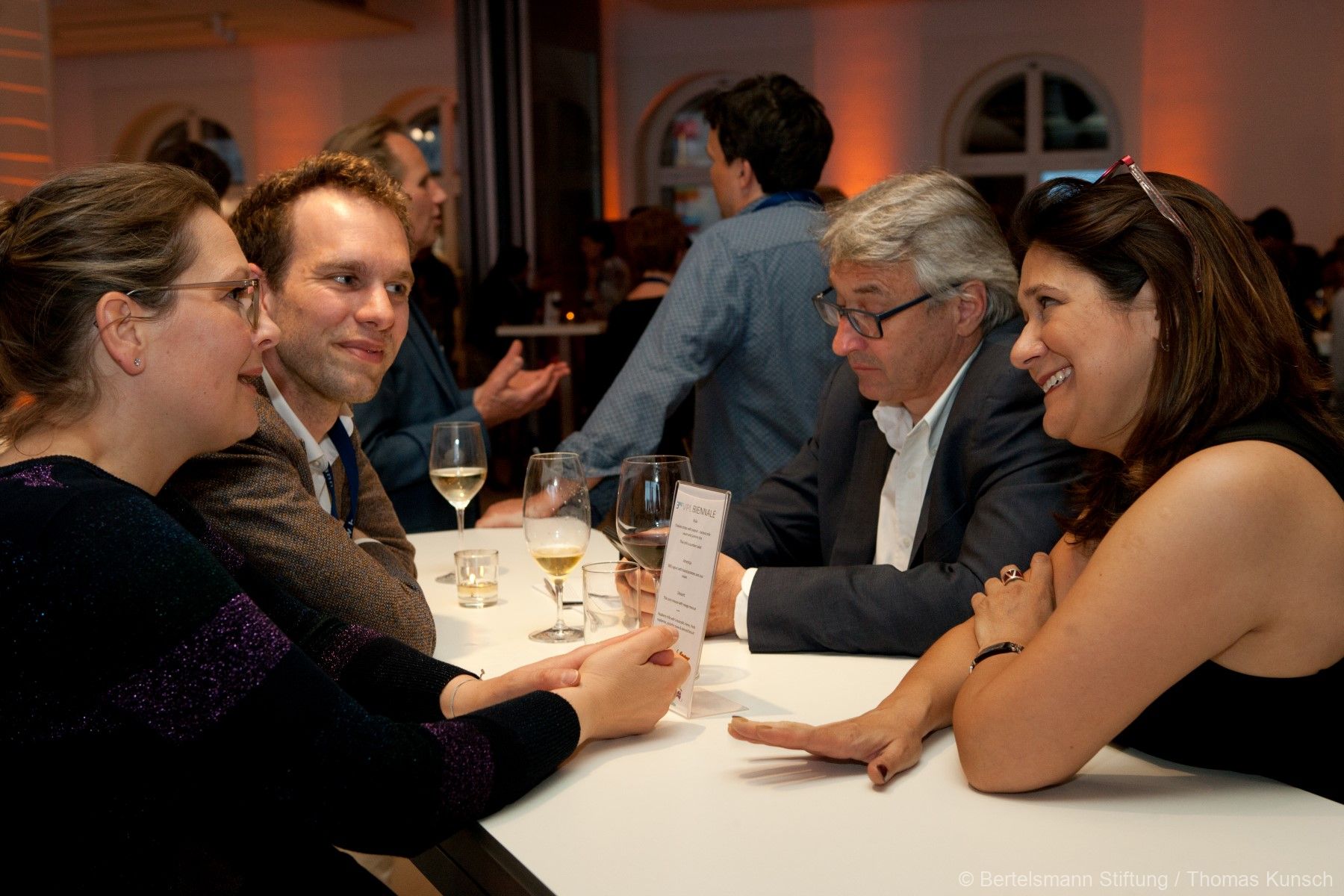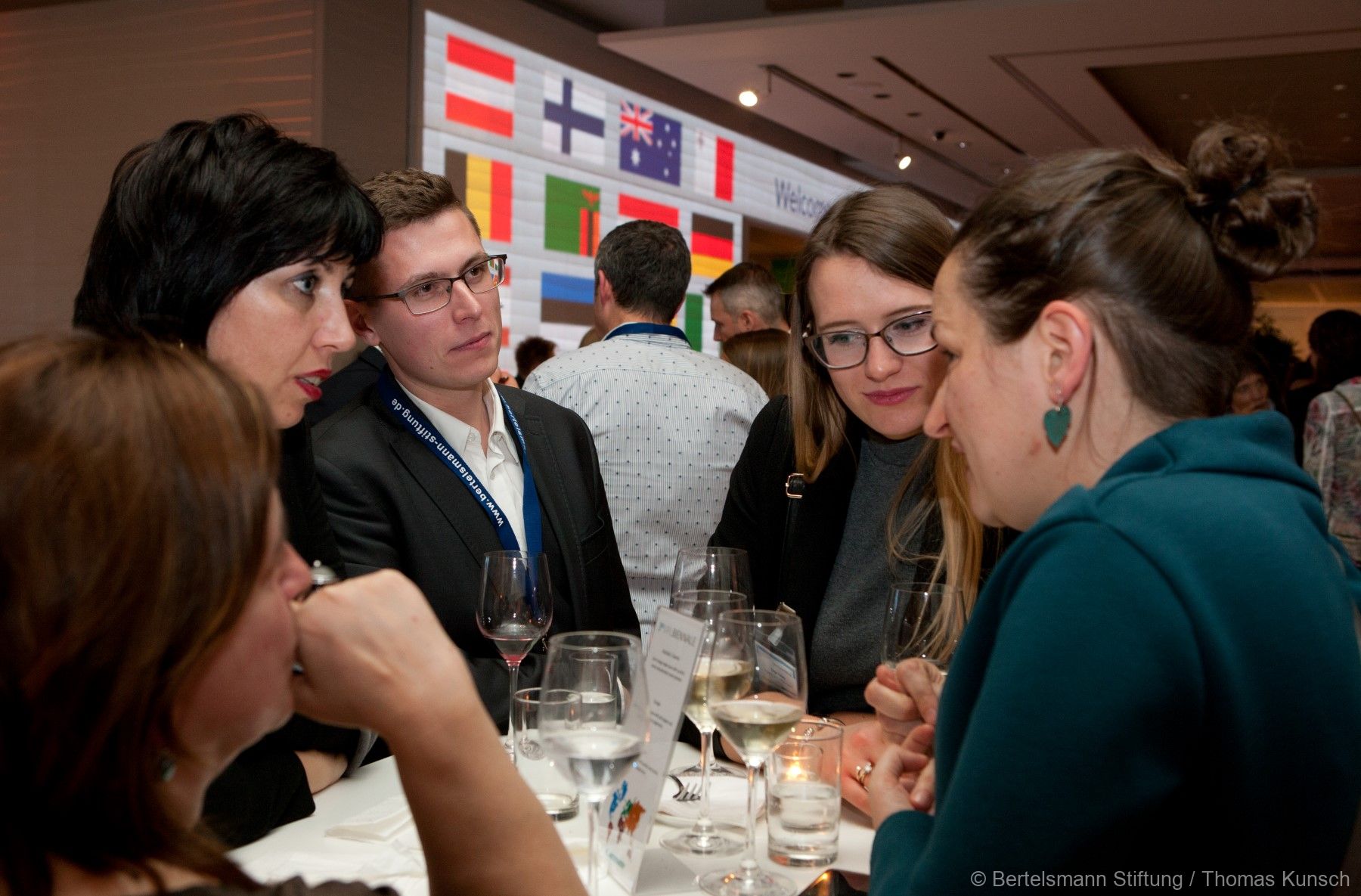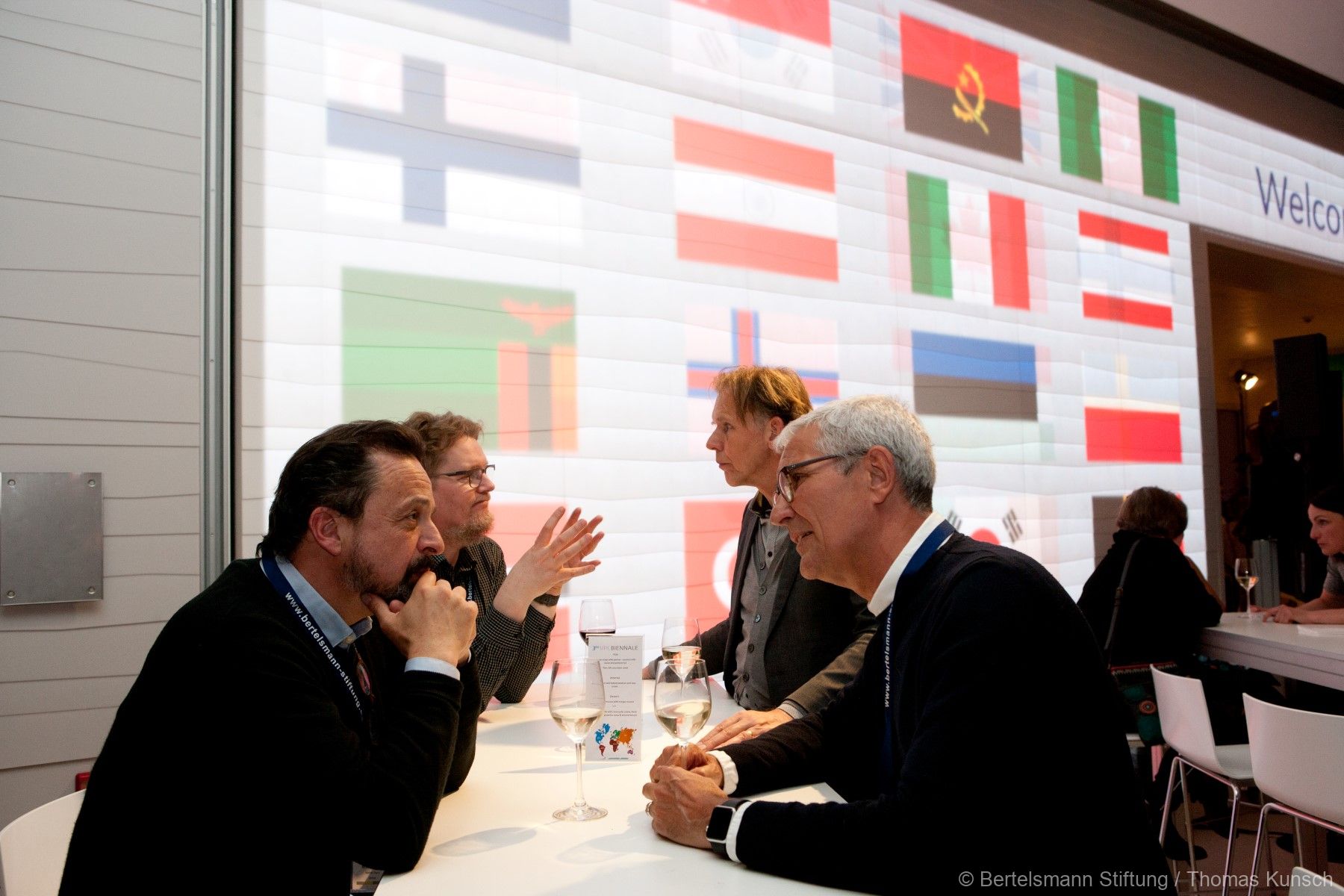The VPL Biennale called for examples of best practice in three categories: products, procedures, policies.
The competition offers applicants from around the world an opportunity to communicate best practice, helping to further develop and implement effective VPL systems.
Products include tools and instruments that make learning outcomes visible or help assess them.
Procedures include structured pathways for getting learning outcomes validated, trainings for assessor and guidance counsellors, or mechanisms for quality assurance of validation processes.
Policies include regional, national or industry guidelines, laws and regulations on validation of prior learning.
Winners VPL Prize 2019
With a theme of “Making policy work – Validation of Prior Learning for education and the labour market”, the VPL Biennale seeks to strengthen the platform for policy makers, practitioners, users, researchers and other stakeholders involved in the development and implementation of Validation of Prior Learning. Below you find the VPL Prize Jury’s commentary on the three winners.
- 2019 - Products - VIRKE the Enterprise Federation of Norway
A Balancing Act
Presented by the VIRKE the Enterprise Federation of Norway – Mr Tormod Skjerve
“A Balancing Act” is a model and method to describe skills acquired in the workplace, so that they can be understood in a wider working life context as well as in the formal education system.
The emphasis on learning outcomes and the connection of work-based learning to formal education makes the tool very suitable to get the private sector and enterprises involved – one of the major challenges in the establishment of validation arrangements.
The tool is an excellent example on how to create the bridges between labour market and the education and training using validation. In addition, it has a lot of potential for improving social dialogue on strategic development of skills.
The “balancing act” is well suited to be integrated and use in the larger context of career guidance by making skills development and acquirement in the workplace more transparent, having, thus enormous potential to spread validation practices in different contexts.
In the described product, the involvement of companies and trade unions as well as the piloting of the tool in three large retail chains makes the product fit for purpose, while making the method easy to use and valuable. Although small in scale and developed for one sector at the moment, it has a lot of potential to be used in other sectors for which development work has already started.
- 2019 - Procedures - IHK-Projektgesellschaft mbH Ostbrandenburg
IQ Netzwerk Brandenburg
Competence Assessment for refugees and migrantsPresented by IHK-Projektgesellschaft mbH Ostbrandenburg – Mrs Violetta Seubert
IHK-Projektgesellschaft mbH Ostbrandenburg developed a VPL procedure for assessment of informally and non-formally acquired jobspecific competences according to uniform standards in all non-regulated dual training occupations in the German VET system for migrants and refugees.
The case is important and relevant for the increased interest of integration of migrants and refugees into the labour market by using competence assessment. The overall objective of the procedure is to integrate these persons into qualified work or vocational training and to improve their employability.
The VPL-procedure is built modularly in a structured way and consists of 4 modules. The instruments used for self and external assessment are standardized and applicable for each non-regulated occupation of dual training system. The approach to migrants and refugees is resource oriented and allow a participatory and reflexive approach. The procedure is based on an individual and holistic conception of human beings and equally focuses on the life and work experience as well as the cultural features of refugees and migrants. The biographical approach is the prerequisite for determining a comprehensive competence profile of the person seeking advice and forms the starting point for the procedure. The aim is not only to make the conscious but also the unconscious competences, skills and abilities visible, to activate them and to use them for the increase of the individual employability.
The procedure in this case contains both subject- and requirement-oriented elements to open validation of prior learning outcomes for integration of migrants and refugees. The case shows the way for validation of prior learning of migrants and refugees in other cultural contexts and countries. And demonstrate how VPL can be used for integration and development of a more equal world.
- 2019 - Policy - Regione Piemonte, Italy
Validation Guidelines in Regione Piemonte
Presented by Regione Piemonte, Italy – Ms Teresa Valentino
The case presented by the Regione Piemonte, is extremely relevant to the spirit of the VPL Prize, and consistent with the philosophy of validation of prior learning outcomes.
Concretely, the Regione Piemonte has been able to capitalise on collective experience to turn pilots into a system, in a context where there is strong evidence that many pilots do not lead to any concrete change in the world of education in general, and in the world of validation and recognition of non-formal and informal learning outcomes in particular.
The first visible outcome of this work is the elaboration of Guidelines. This is a key first step toward the establishment of a convincing system open to all potential end users, and known to all stakeholders.
Several dimensions of this case make it particularly appealing to observers, researchers, policy makers, and future developers of validation of prior learning systems. First of all, the Regione Piemonte has a long tradition – almost twenty years – in the field of recognition of non-formal and informal learning. They build from experience, as it were, and they build successfully. There is a lot to learn, especially in the convincing funding system they adopted. In addition, the willingness shown in this case to convert experience into a system is a very convincing move, especially in Italy where there is no national approach. The work of the Regione Piemonte is consistent with the European Union approach, and the attention to important components in these guidelines is of paramount importance (e.g. procedures, instruments, standards, awards, establishment of a feedback loop from professionals). It seems Regione Piemonte has identified and addressed all the key issues for the establishment of a successful VPL system, able to meet the needs of all potential end users.
Nominees 2019
Previous VPL Prize winners
- 2017 - Iceland
Watch here the interview with the VPL prize winner of 2017: Iceland: Validation within the Certified Trade Sector
VPL prize 2017 for Iceland: Validation within the Certified Trade Sector #VPL2017 #Iceland # pic.twitter.com/csuxwdVHWF
— VPL Biennale (@VPLBiennale) 27 april 2017
- 2014 - Rockwool
In April 2014 ROCKWOOL won the VPL Prize. ROCKWOOL Benelux has integrated VPL into the company’s training and development policy and instituted a human resource management strategy. By training assessors and other staff and using portfolio as the foundation, employees are assessed, provided with advising and supported in the development of personal development plans and the opportunity steer their own internal and external education and training opportunities.
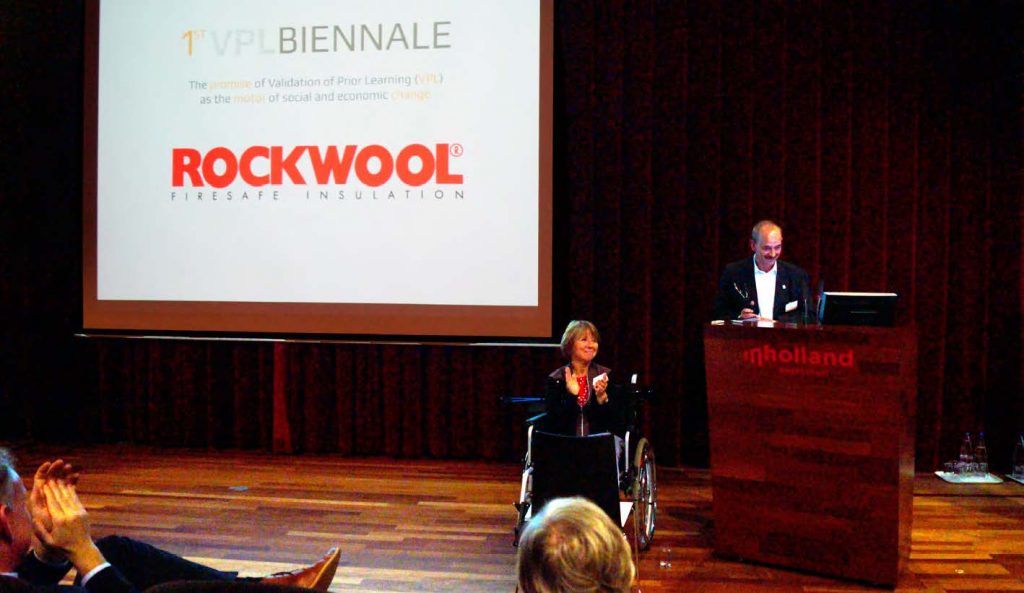
John Geven (ROCKWOOL)
Photos Award Ceremony 3rd VPL Biennale Berlin
VPL Prize assessment procedure
- A panel of impartial jury members was briefed on the VPL prize assessment criteria.
- Two jury members were assigned to each application. They scored the application against the set of criteria listed on the application form. When their grading differed by more than 10 points, a third jury member assessed the application. In this case the mean value of the two highest scores stood. In cases where the difference is less than 10 points the mean value stood. The same assessment form will be used for all three categories.
- Consolidation phase: in case some applications within the same category receive the same score, the jury members will have a consolidation discussion. Their task is to indicate with qualitative arguments a distinctive difference (be it one point or more) between the applications.
- The applications in each category will be ranked in order according to the consolidated scoring.
- The three best scored applications of each category were invited to the VPL Biennale and the prize winners of each category were announced and awarded in the evening session on May 7th.
- All the 3×3 nominees had a stand at the Biennale main hall, where they had the opportunity to showcase their product/procedure/policy.

